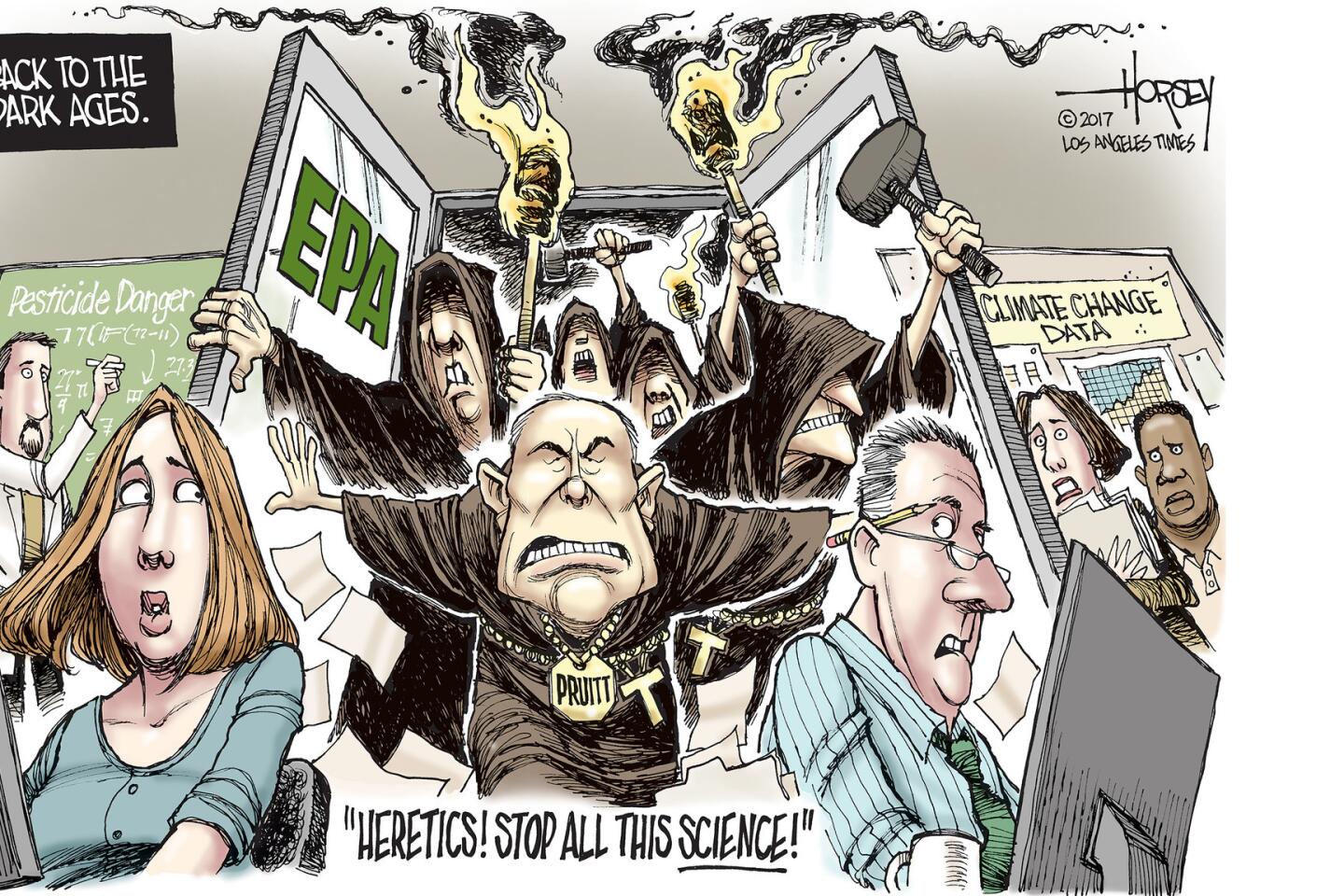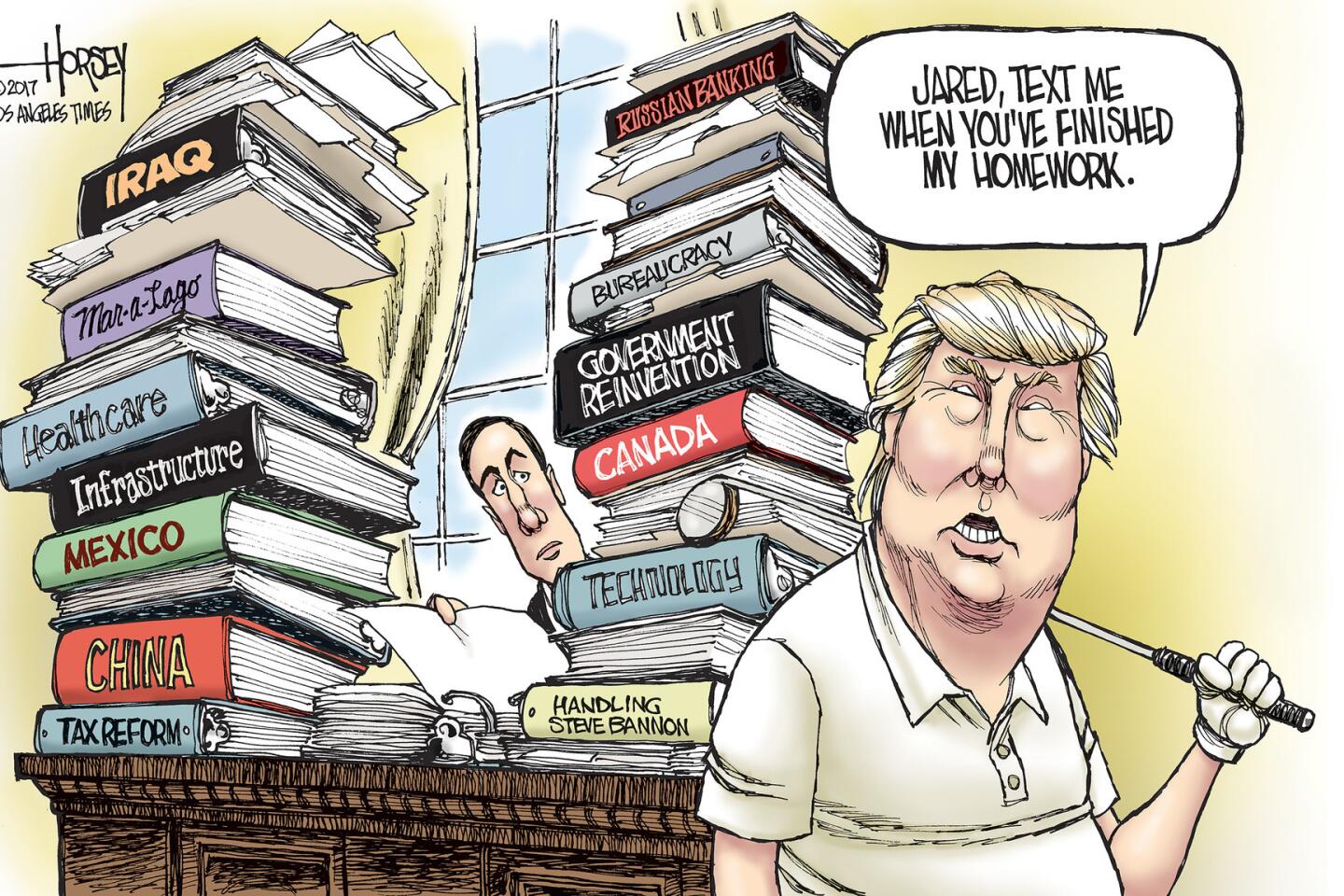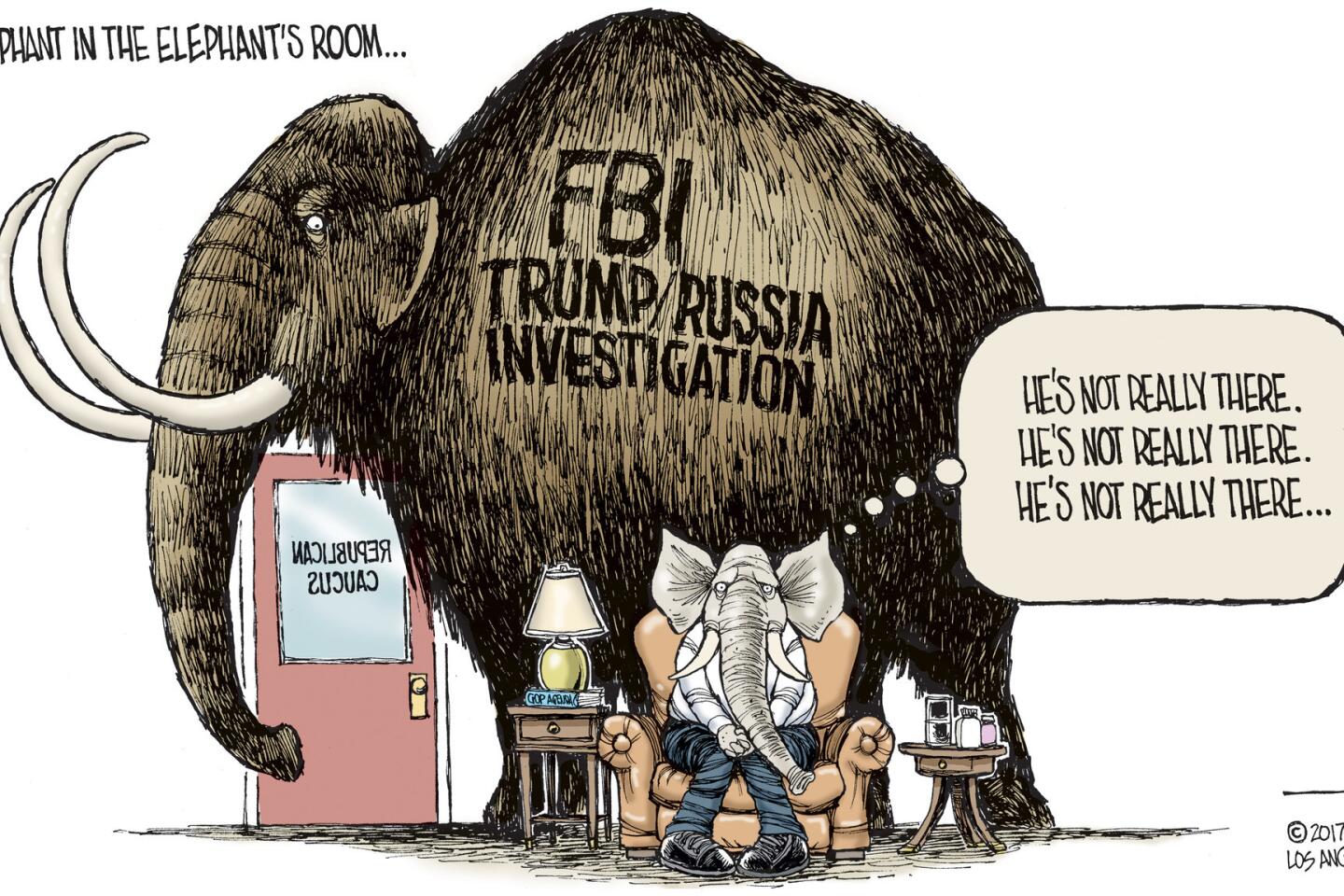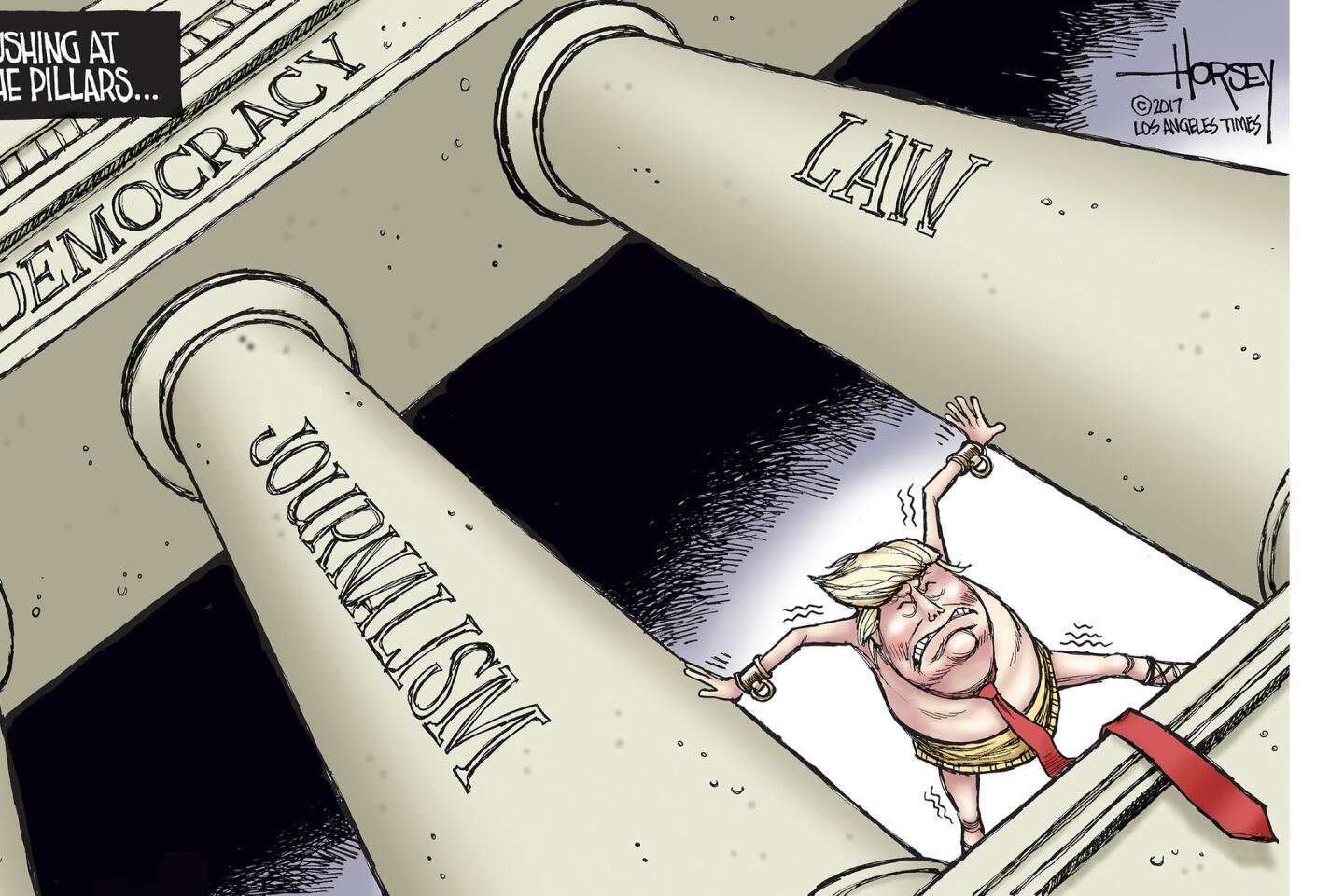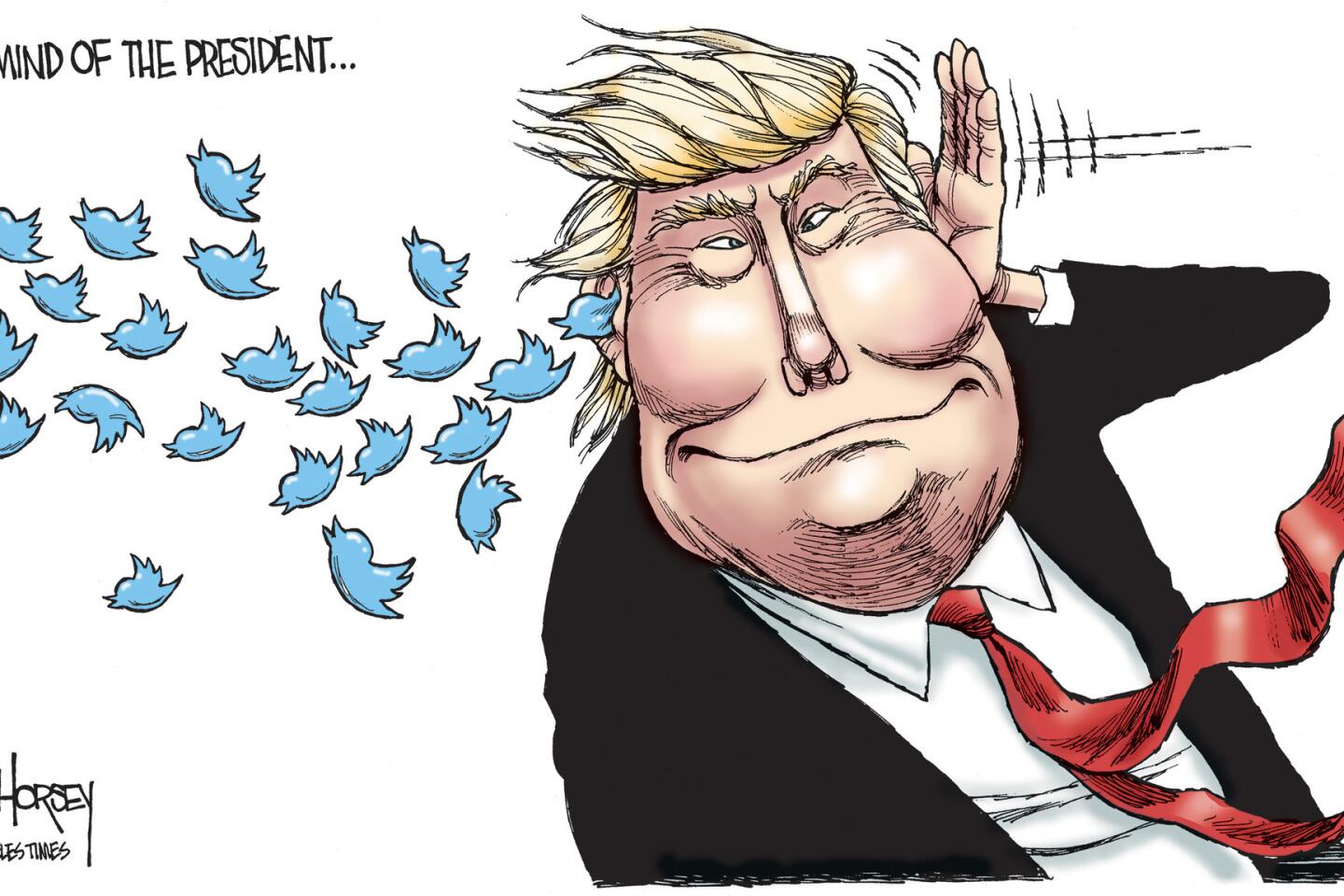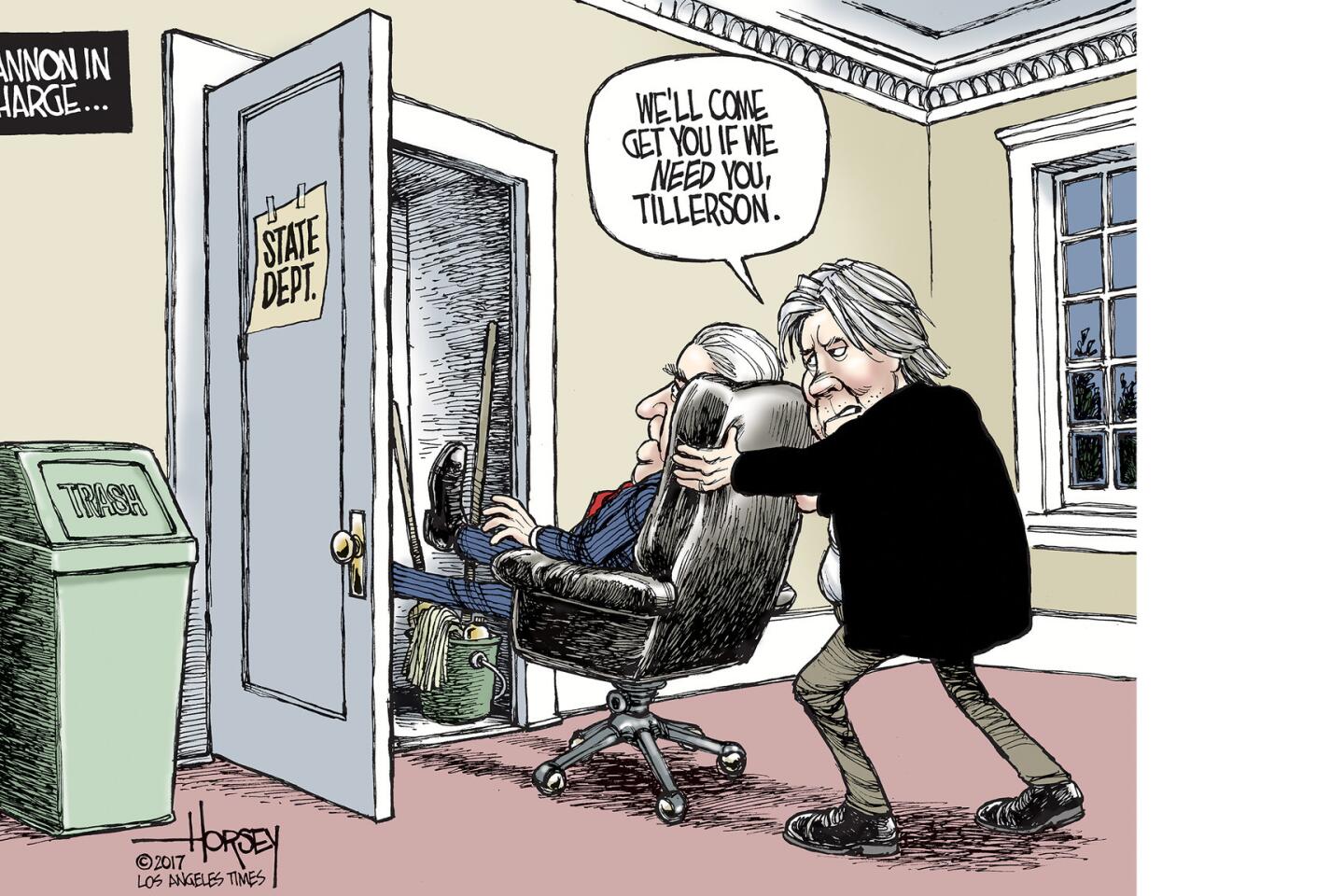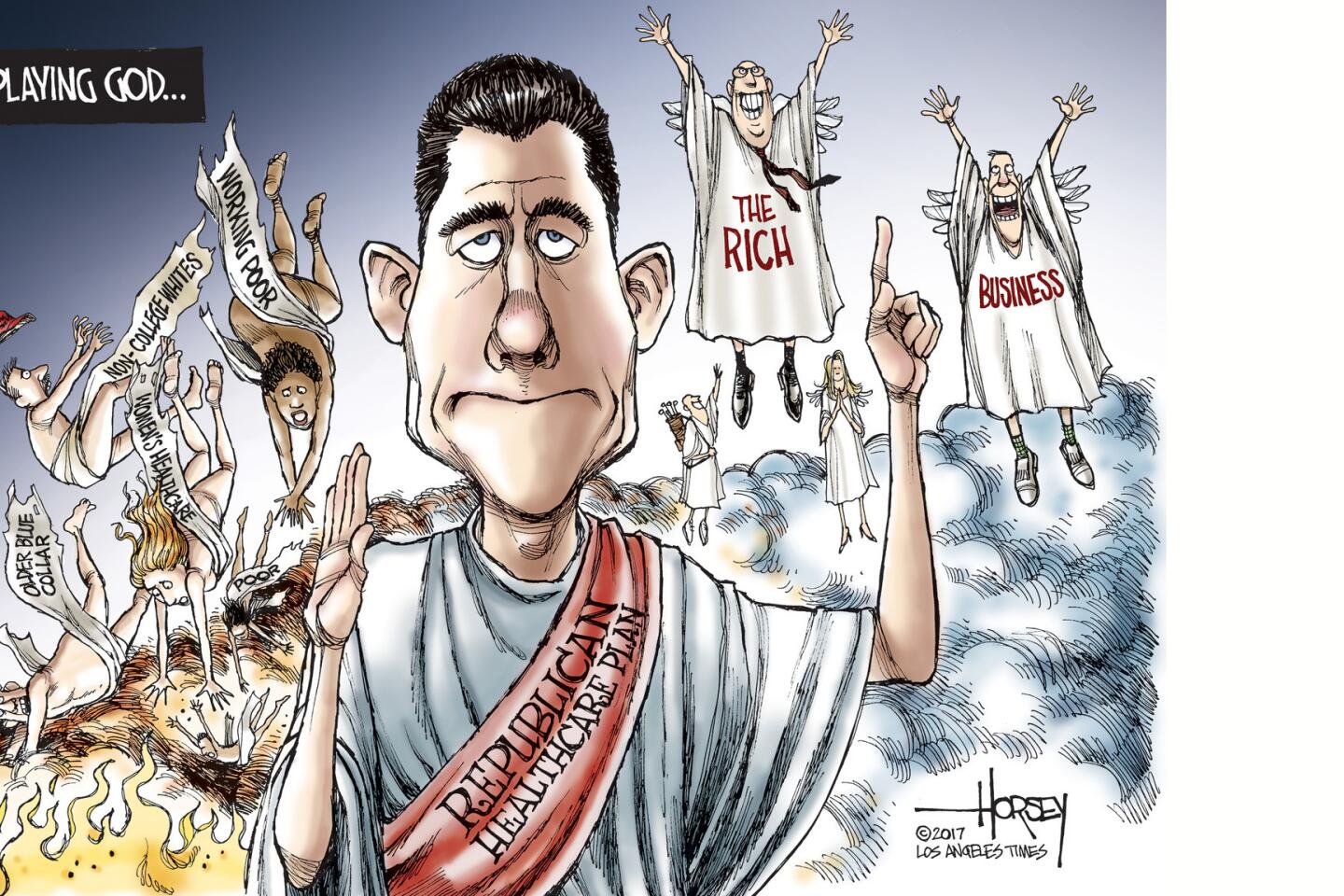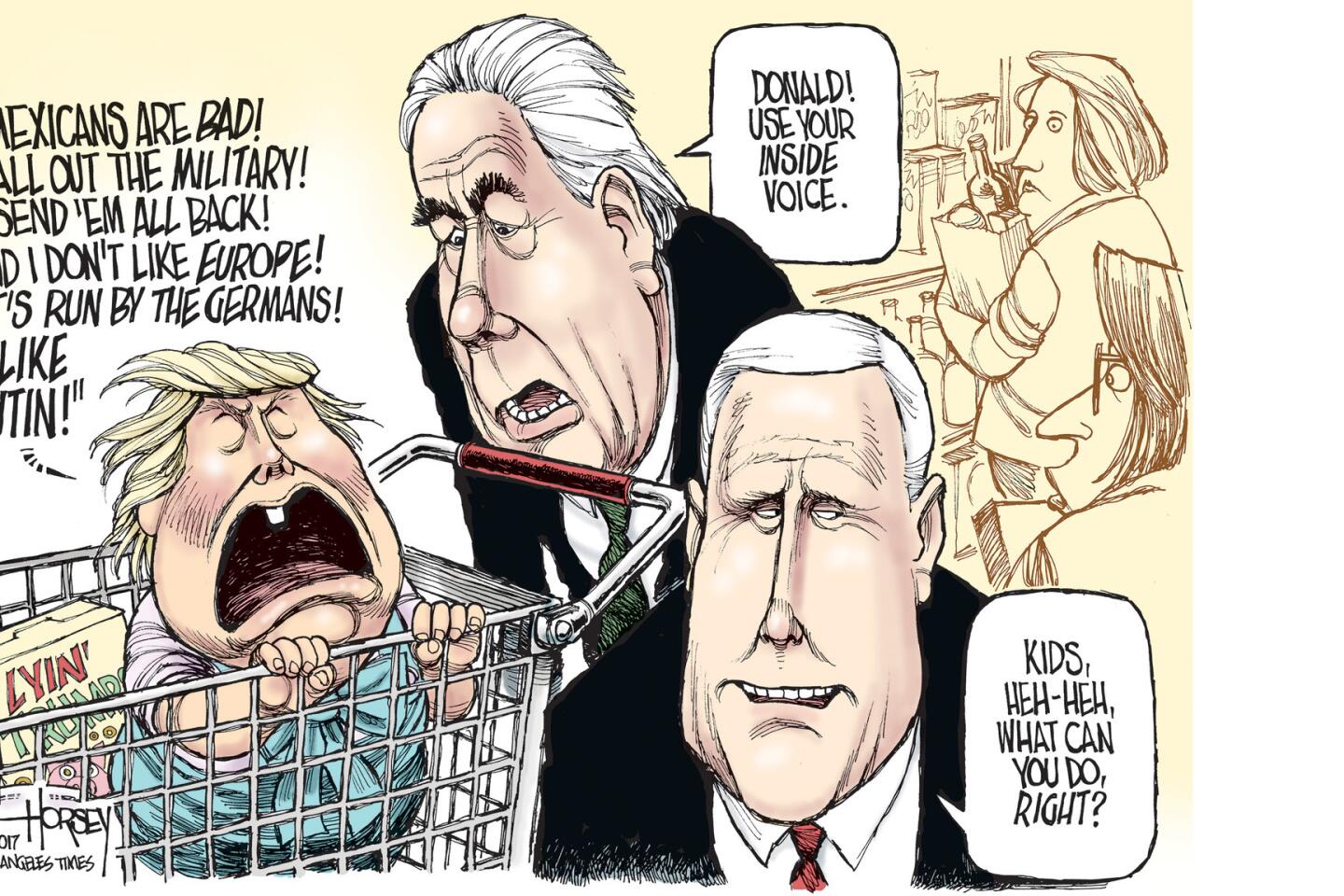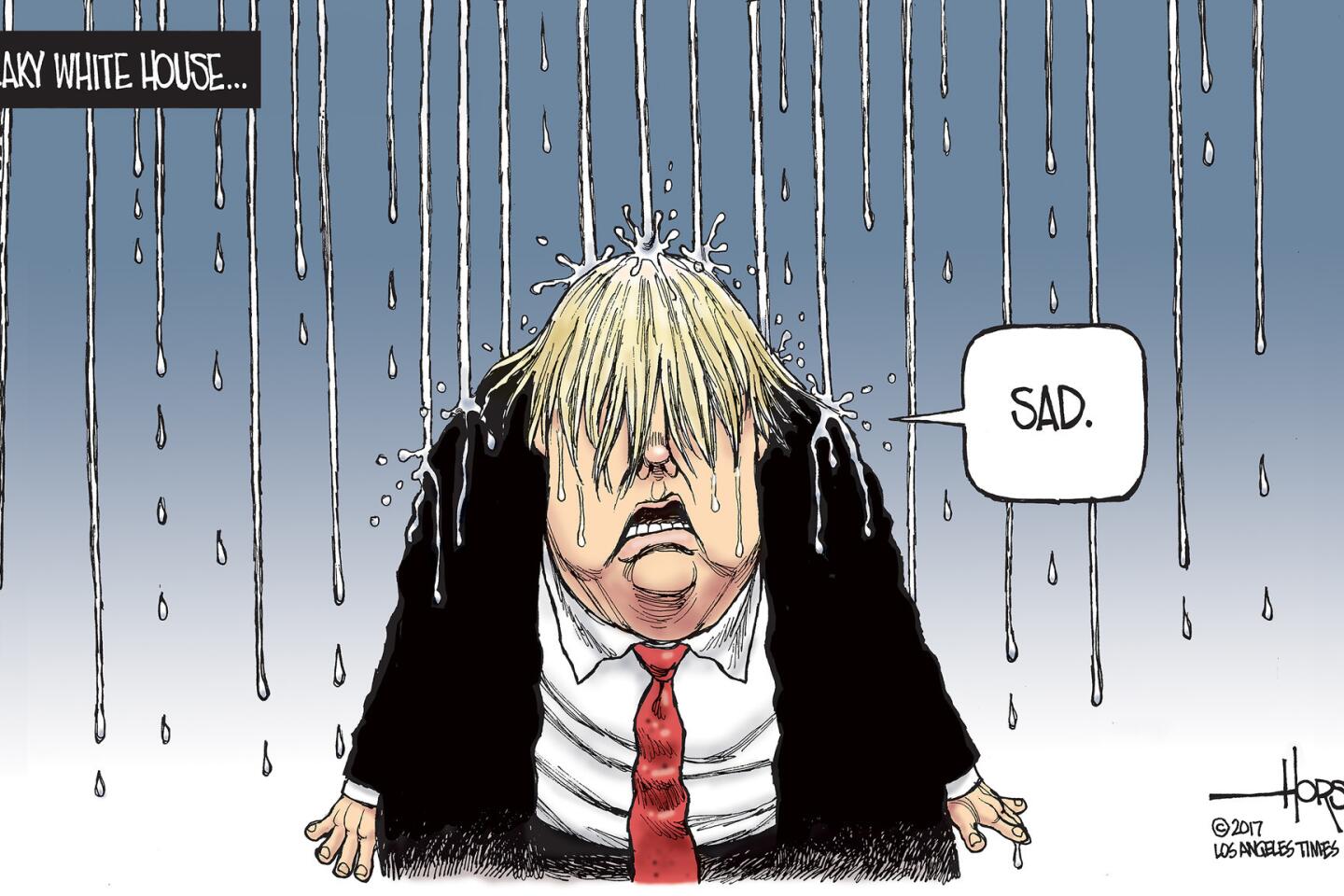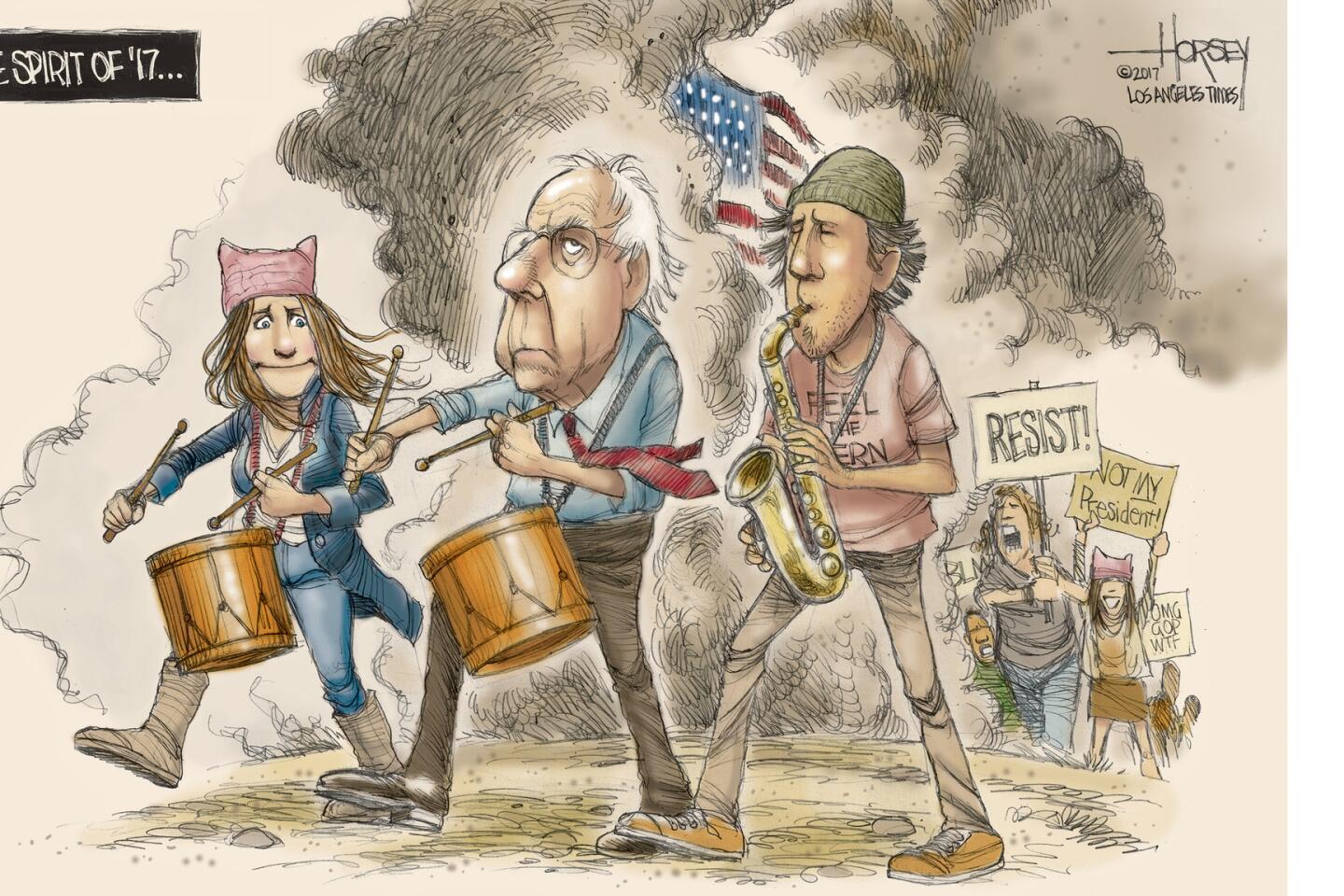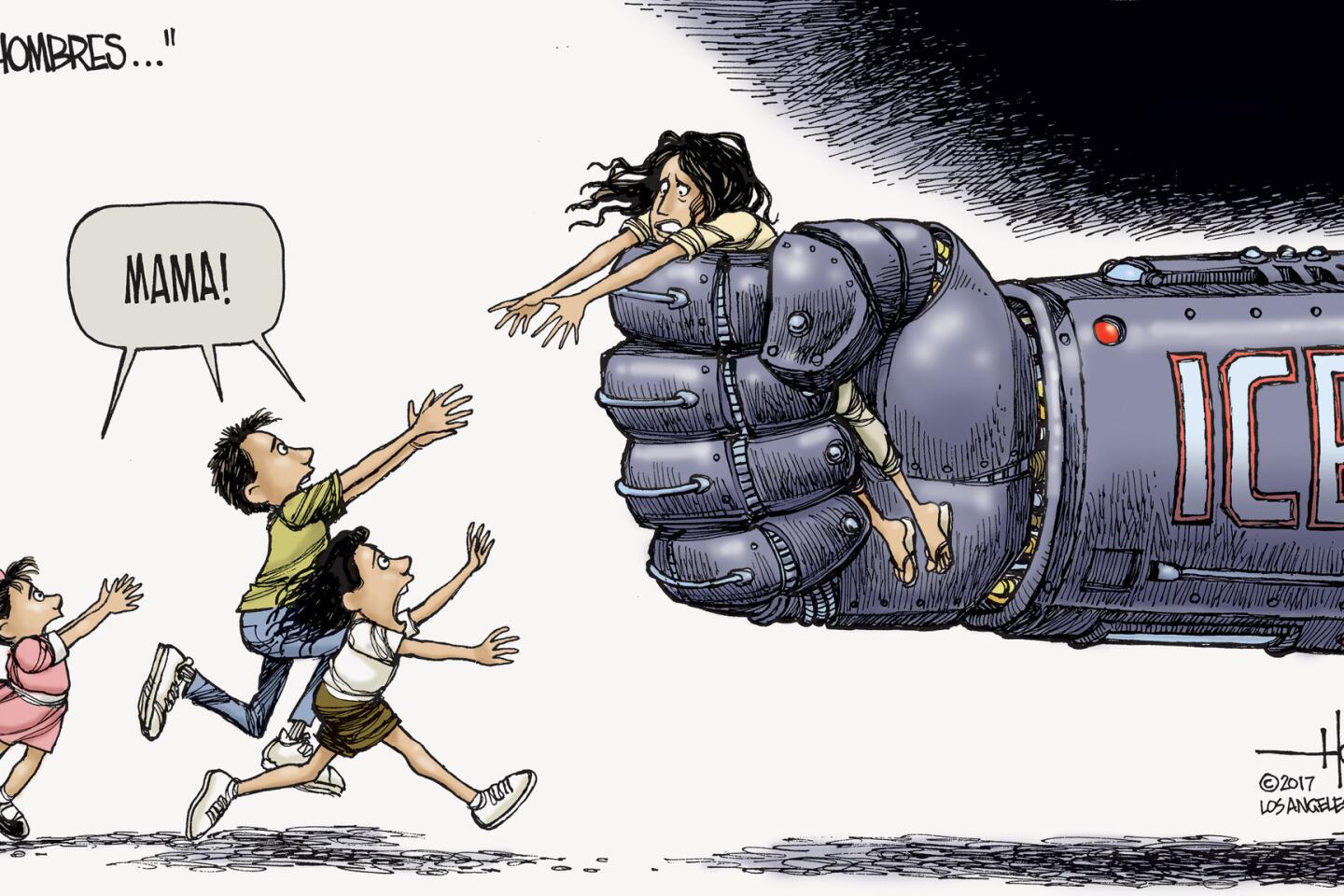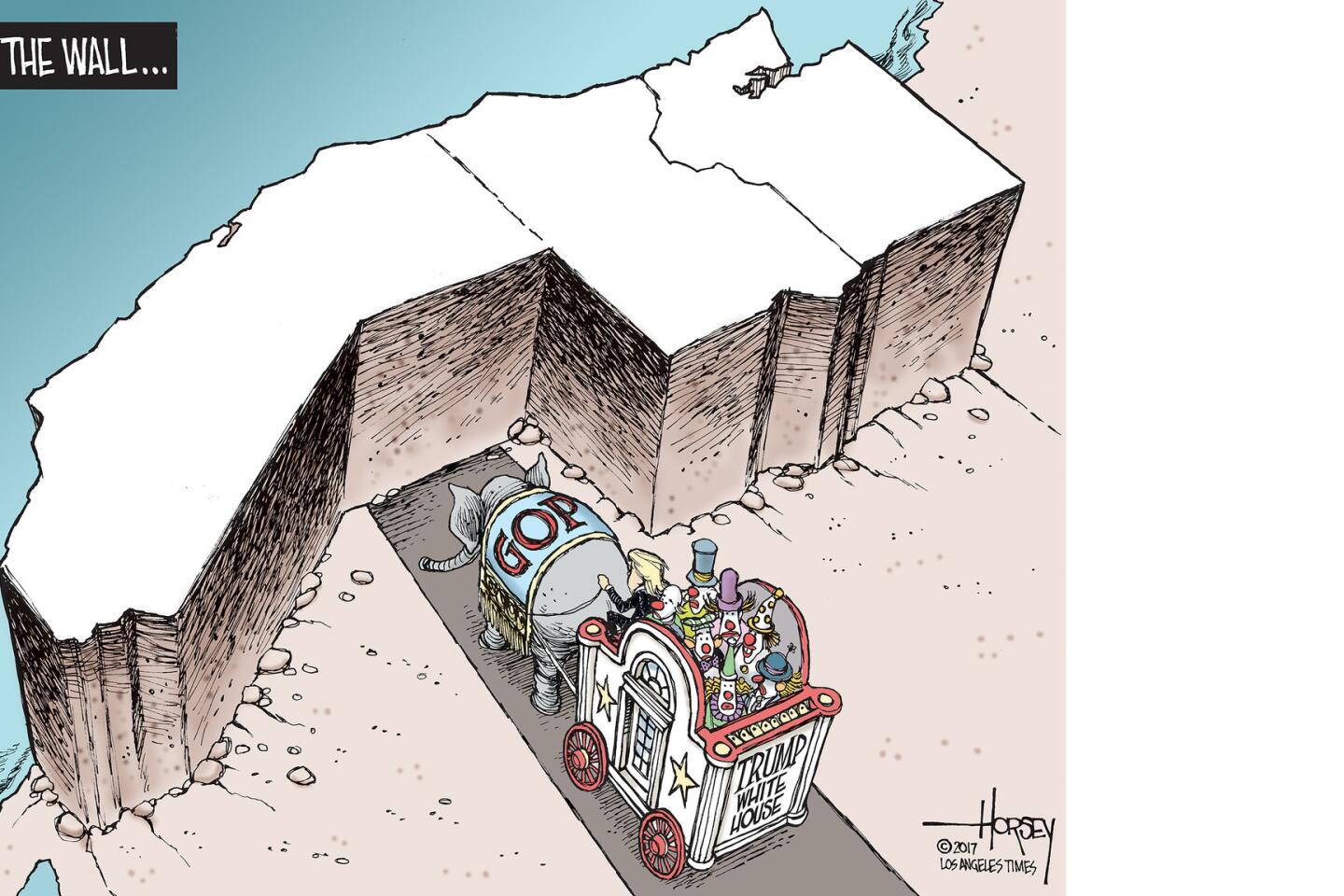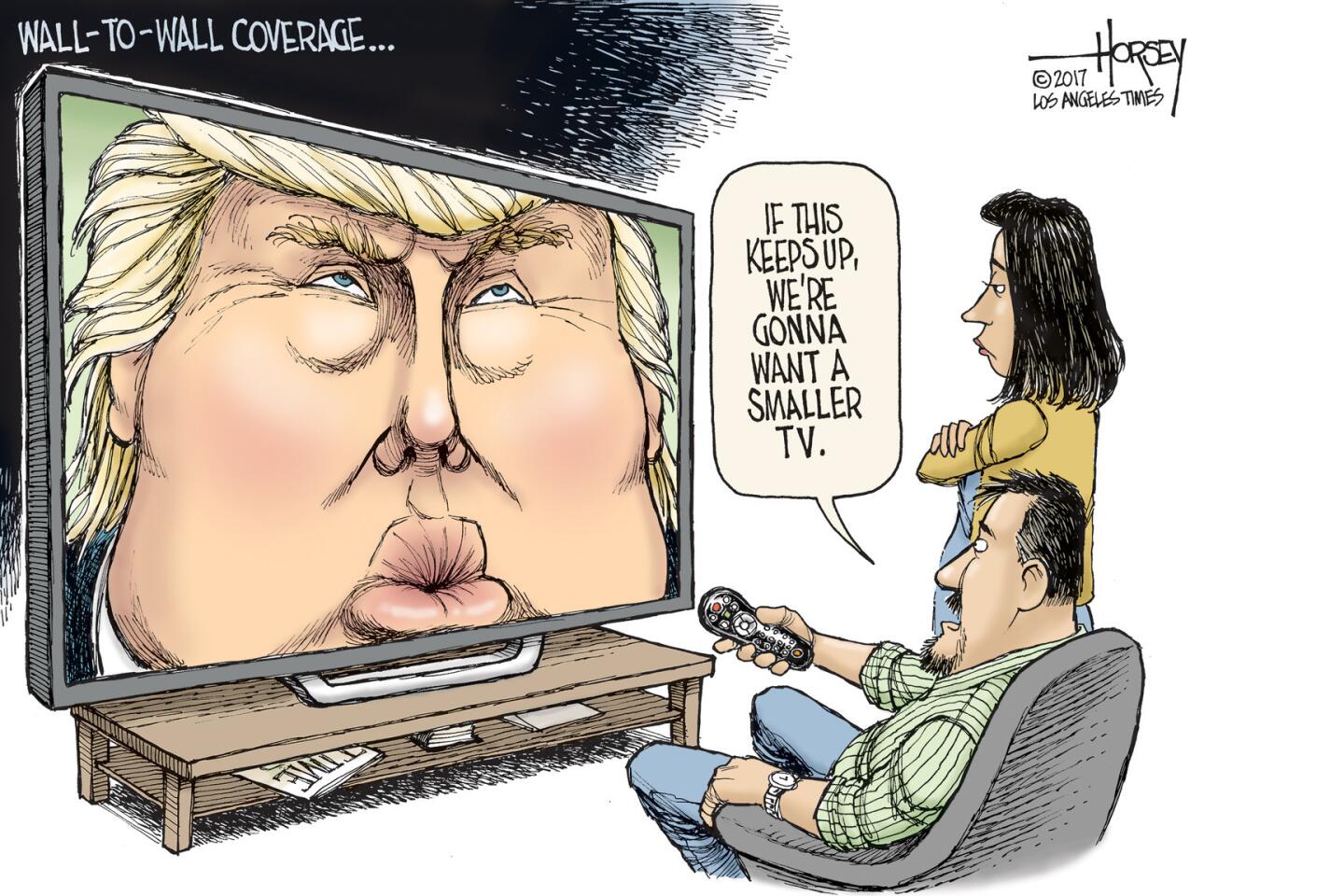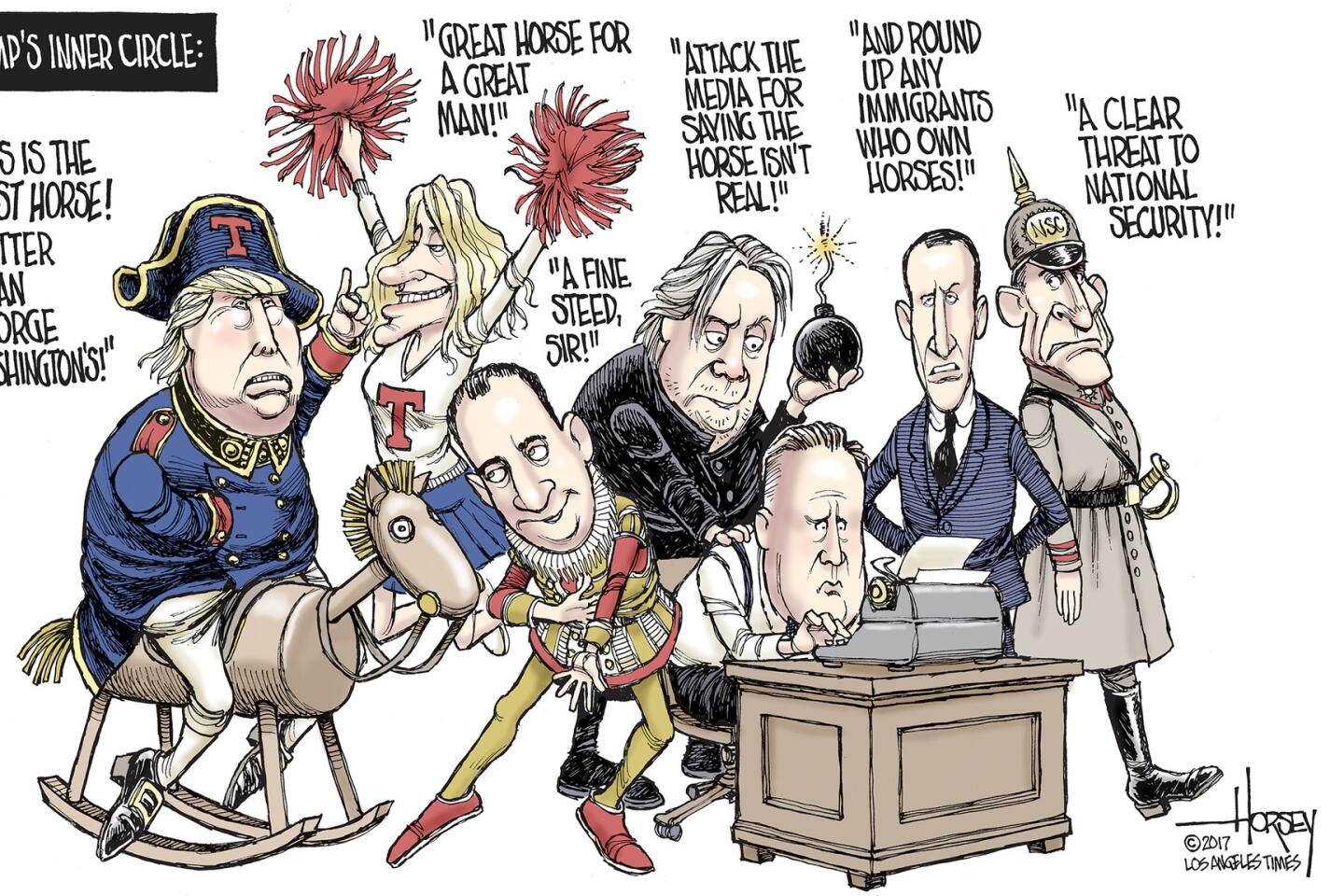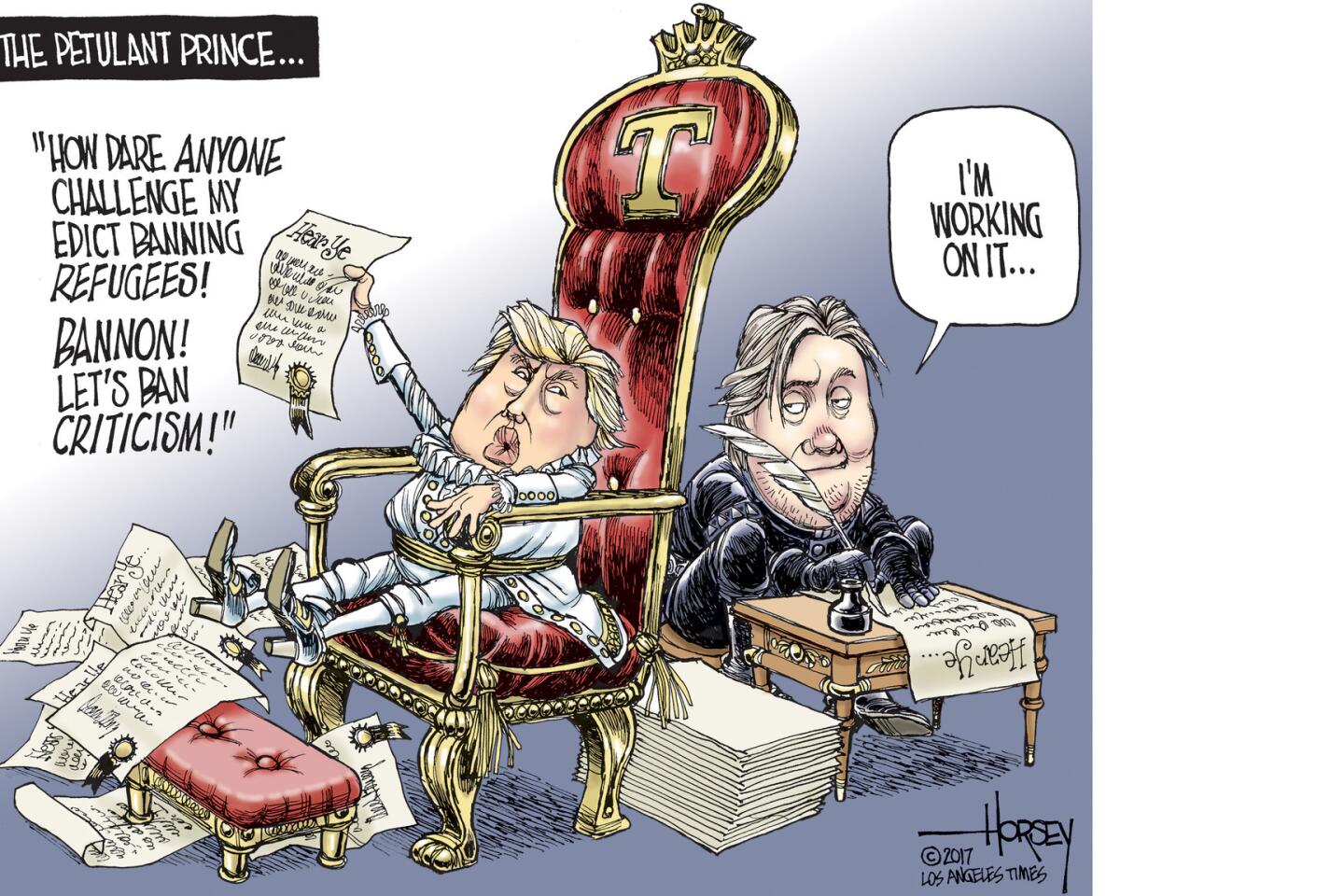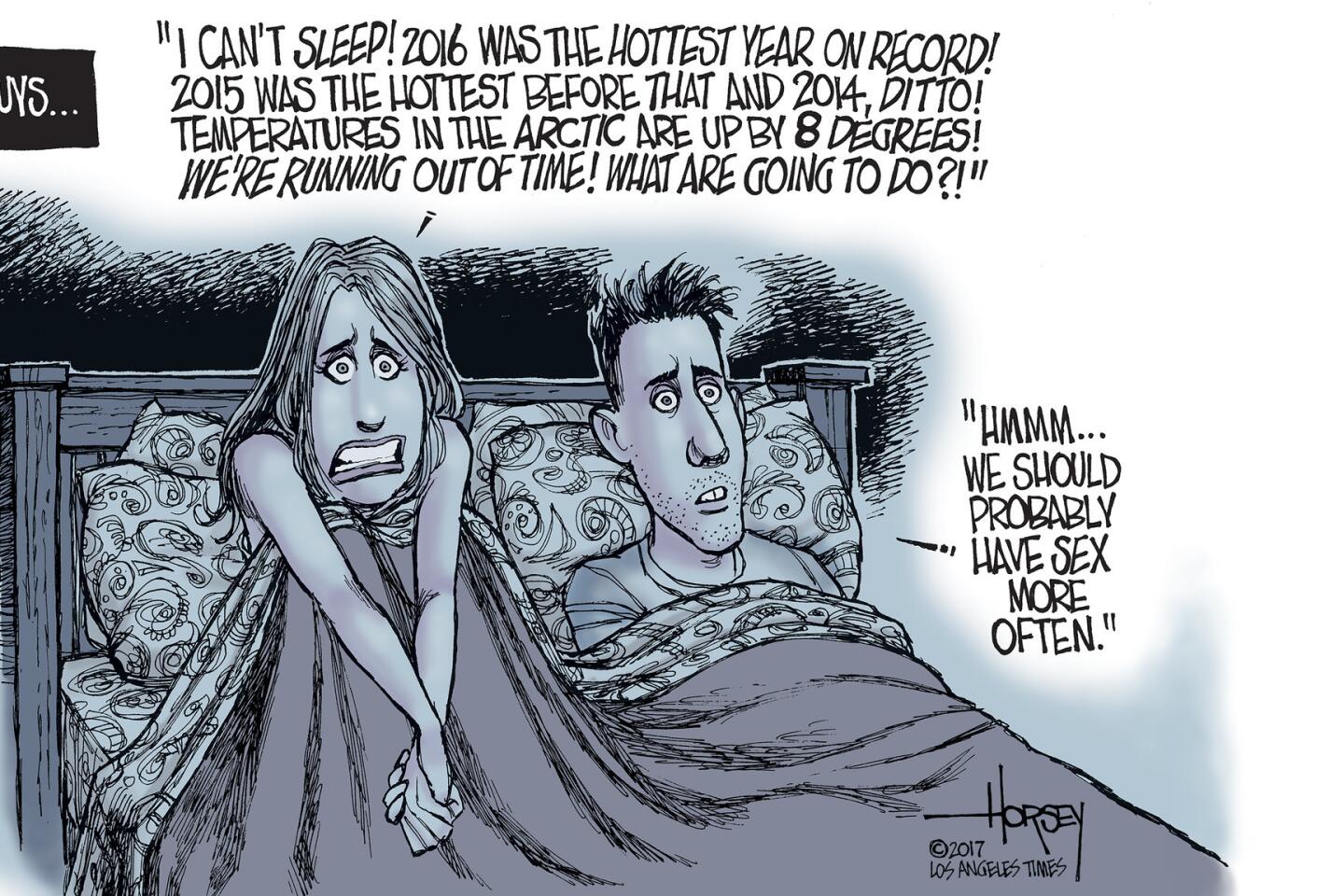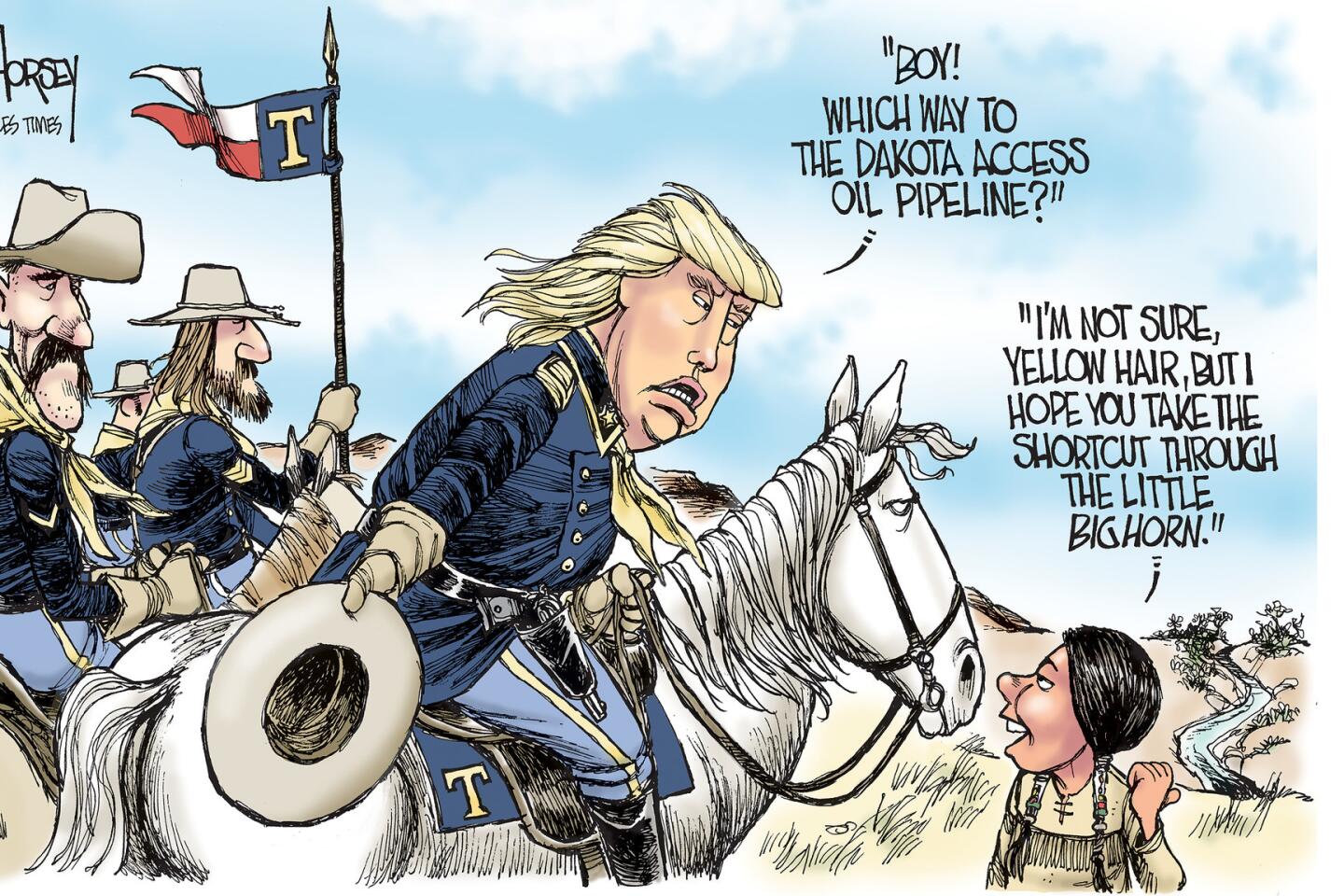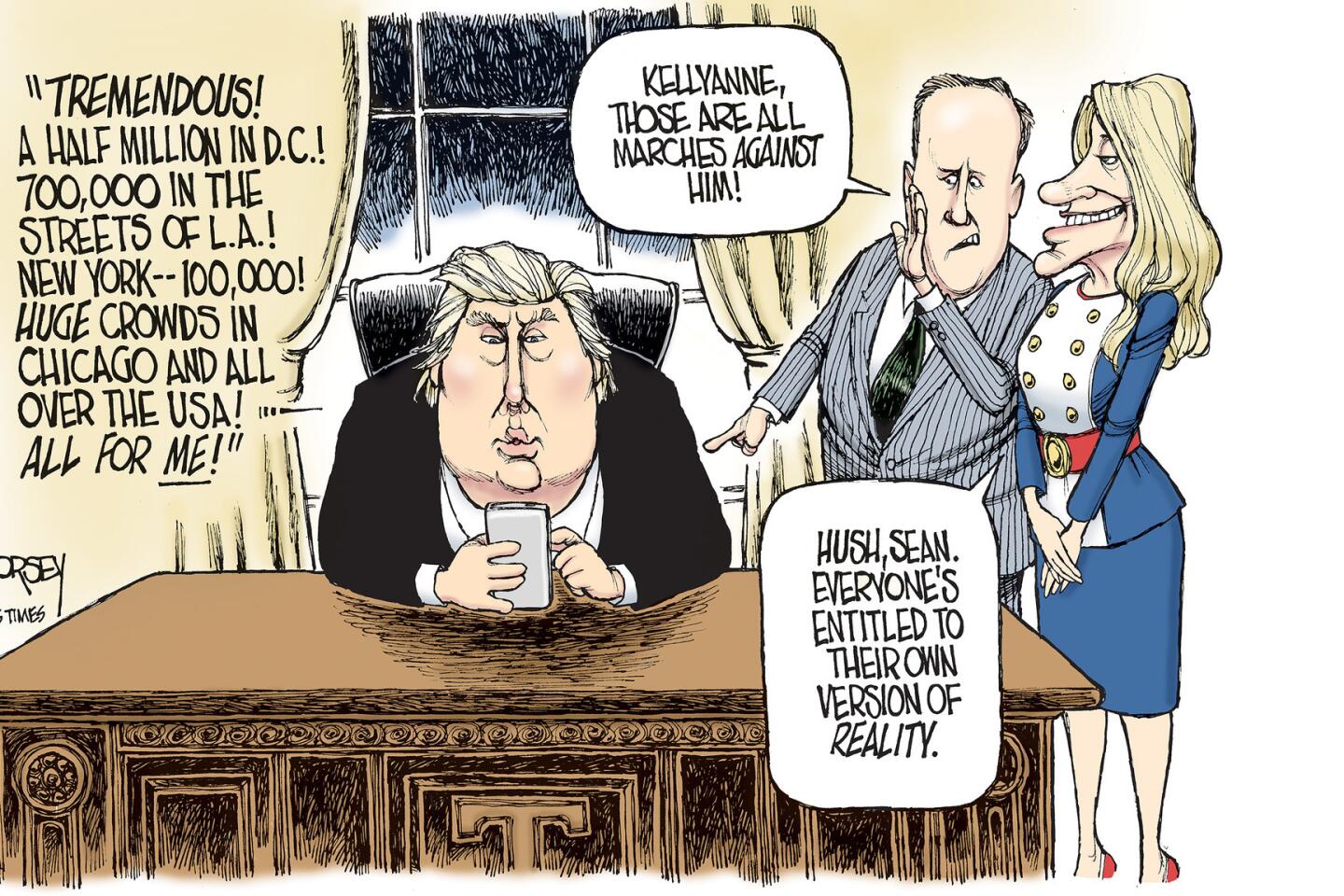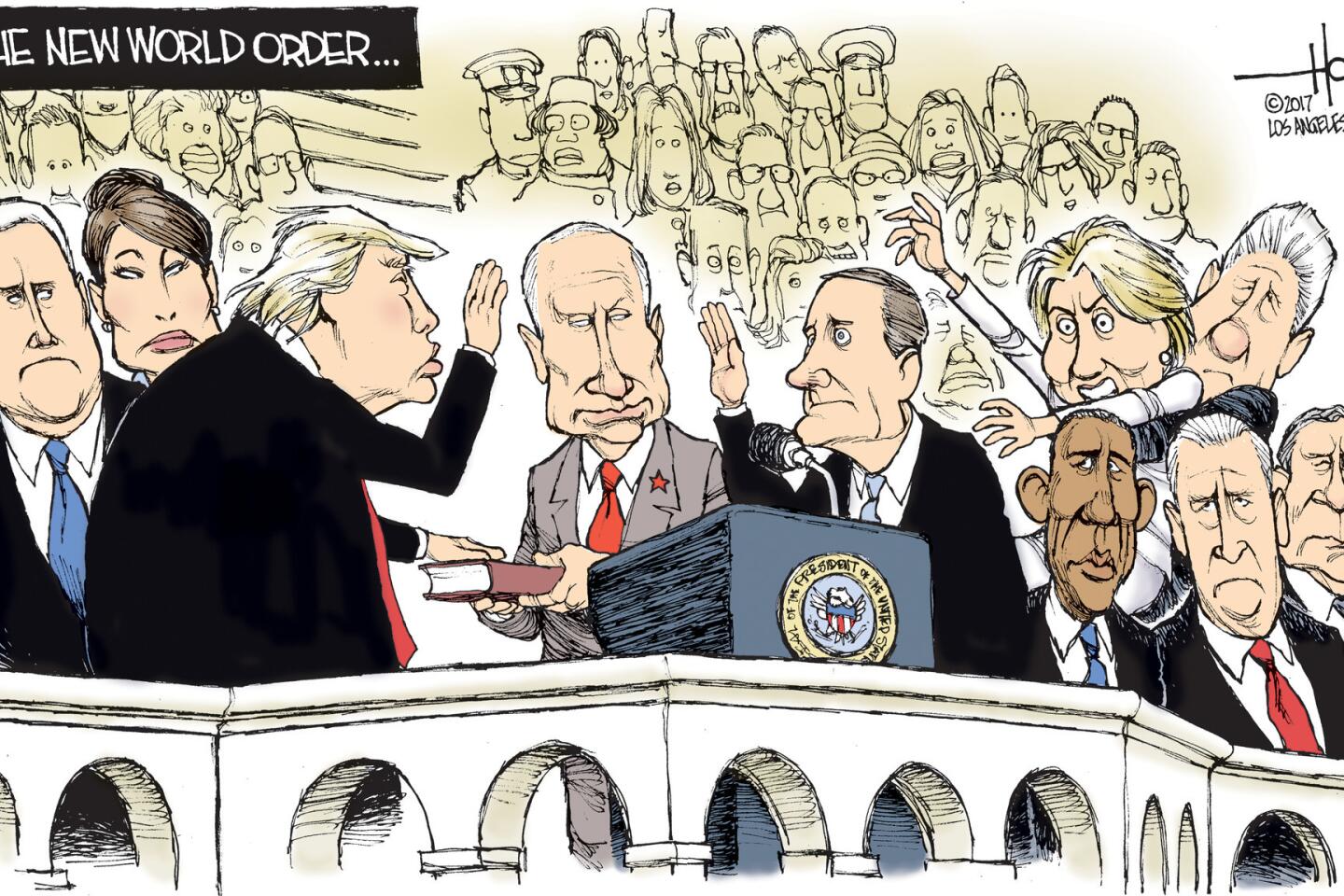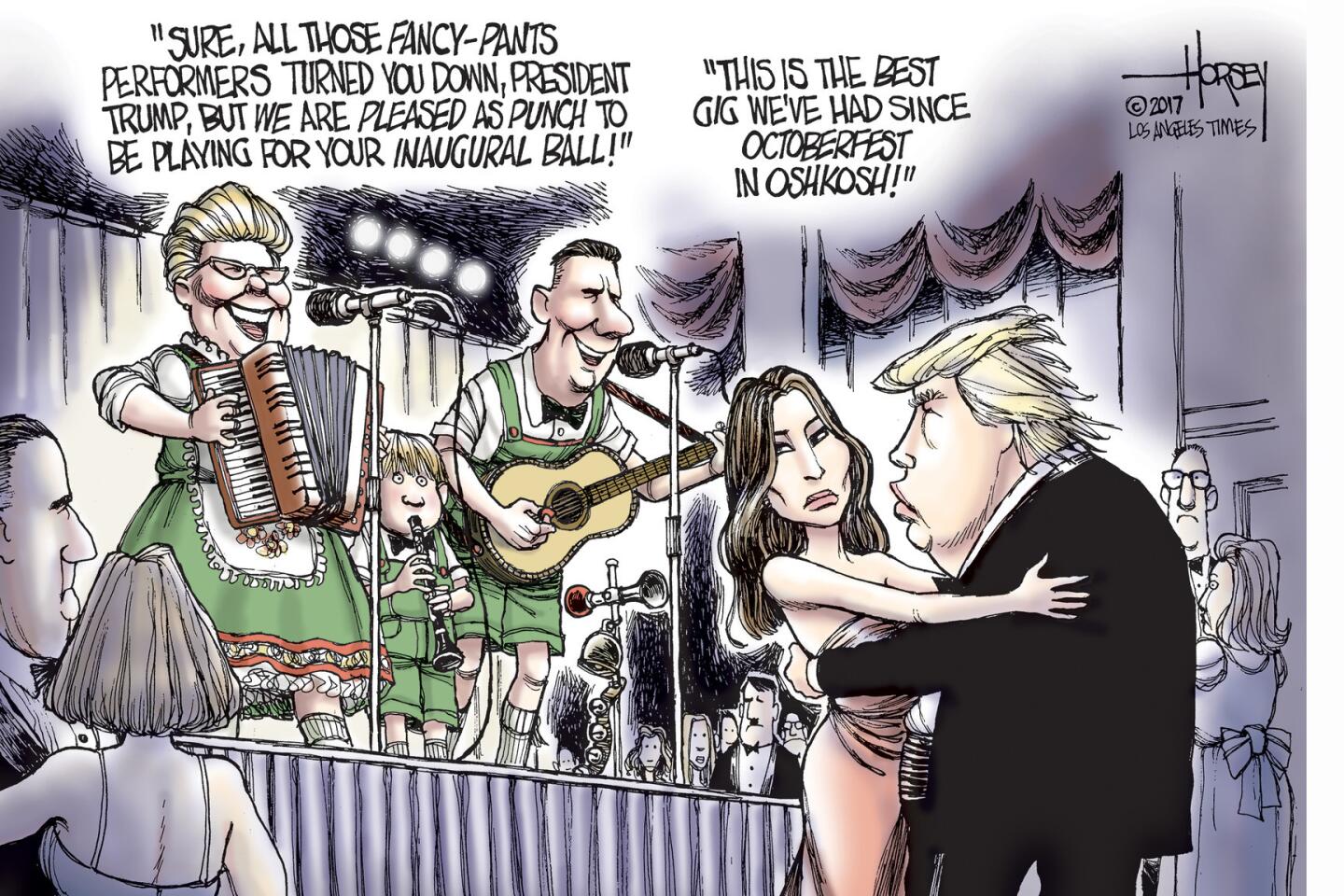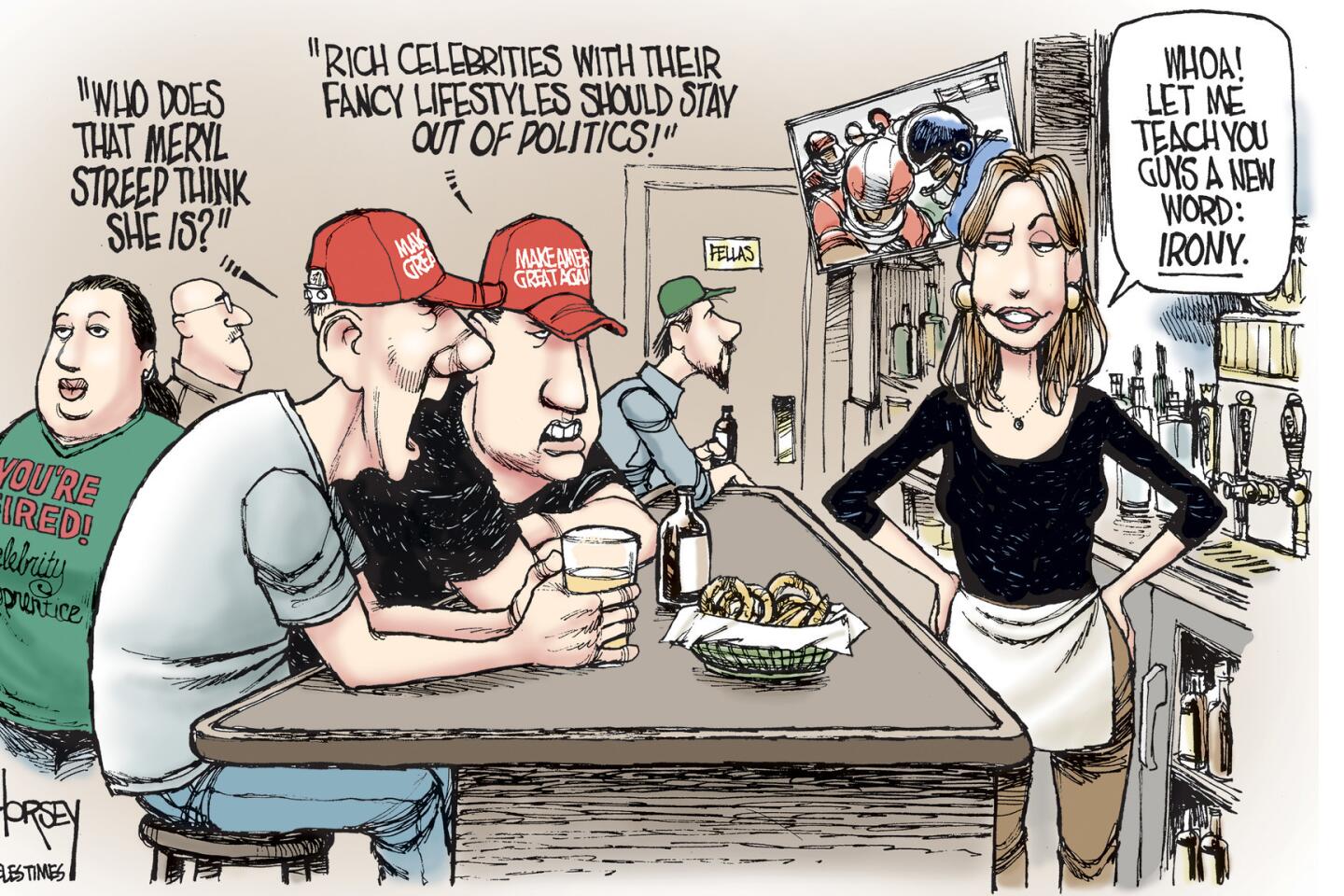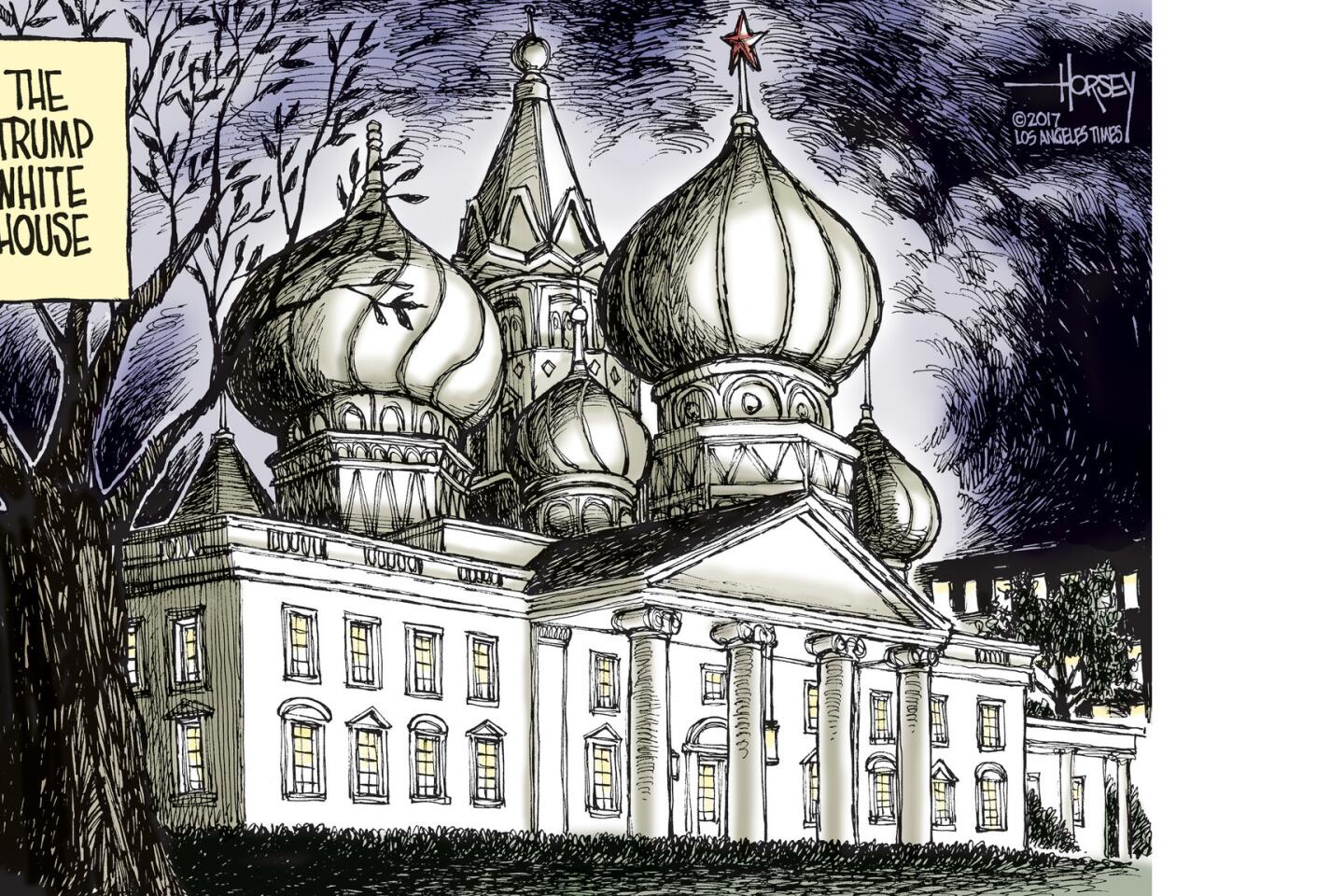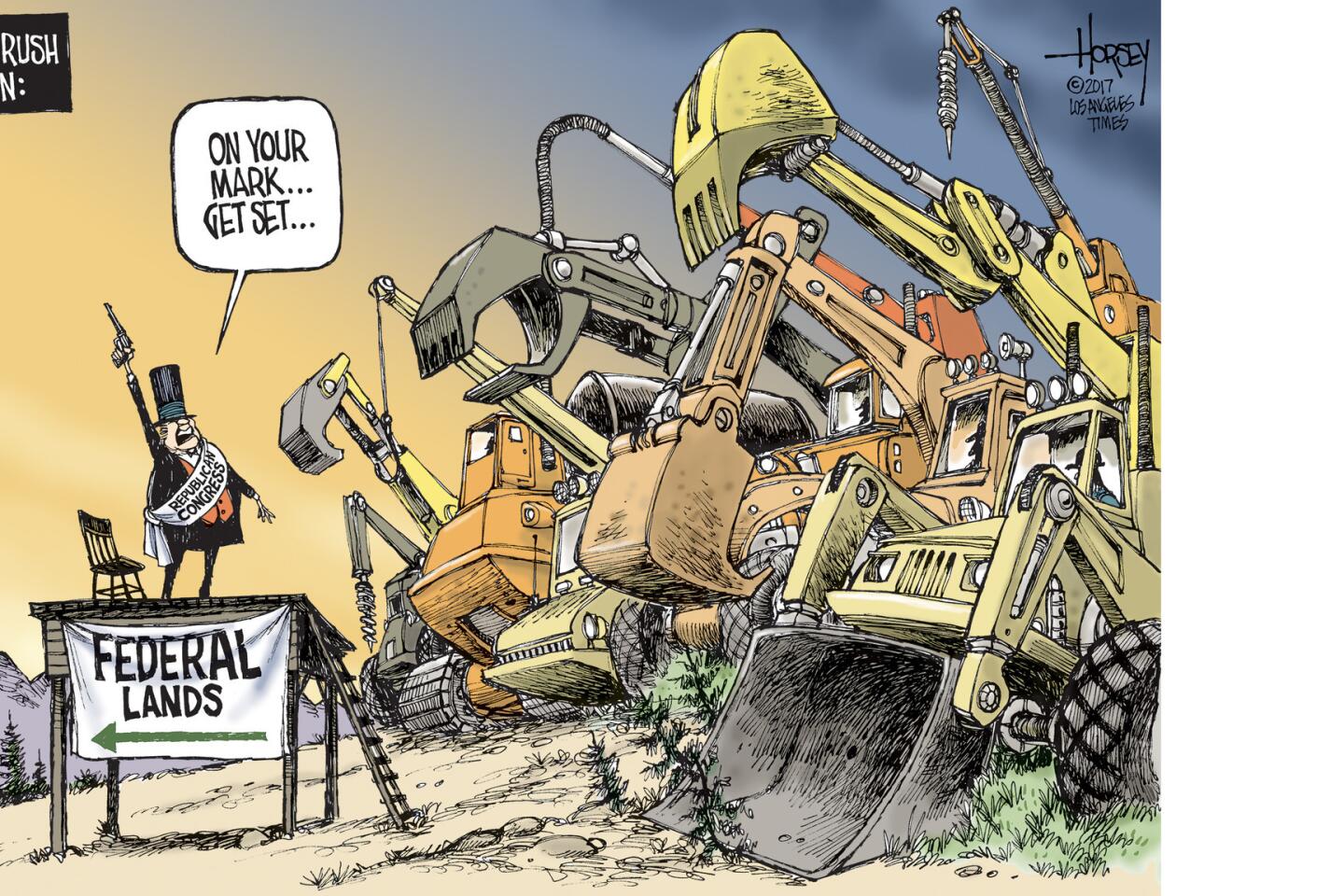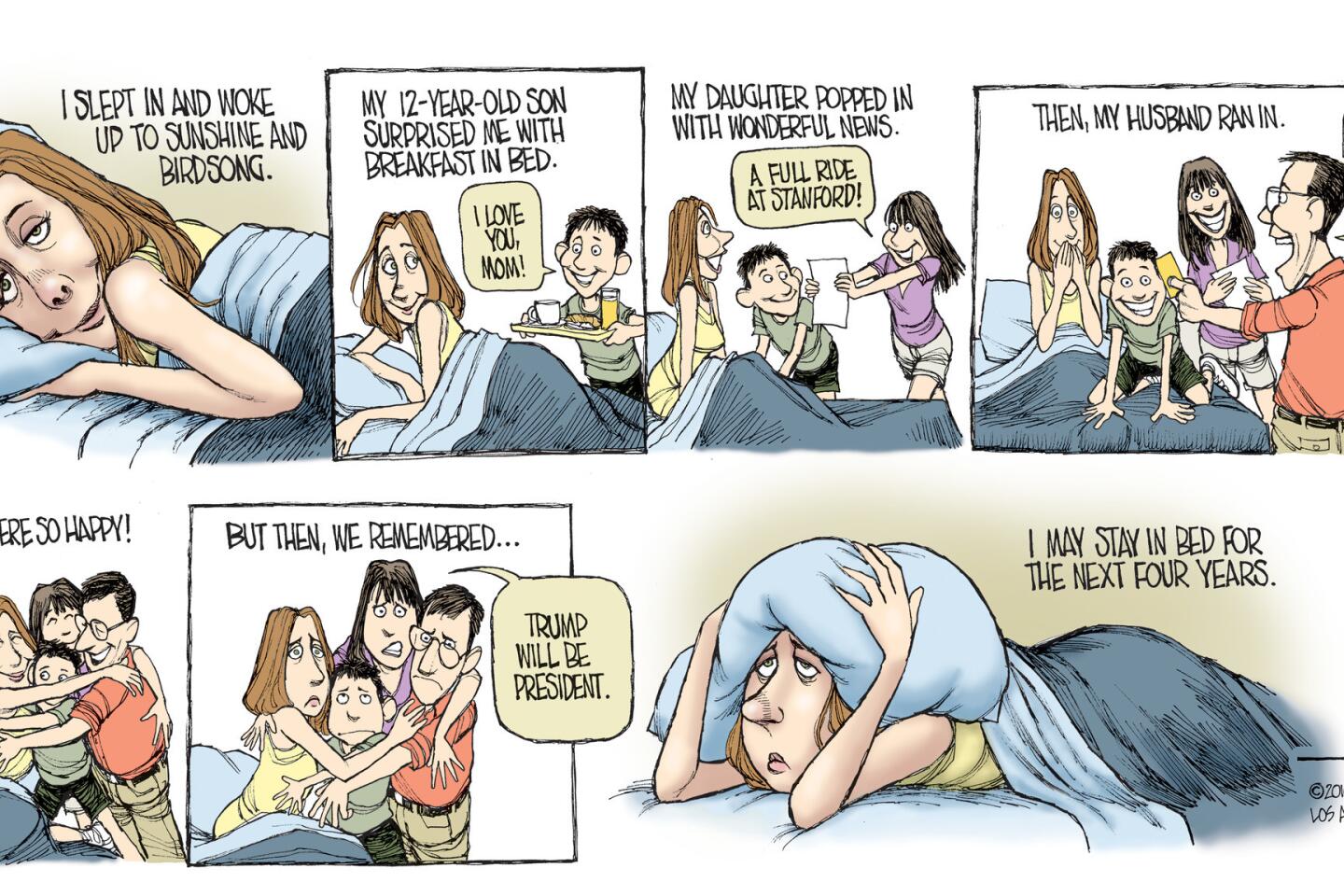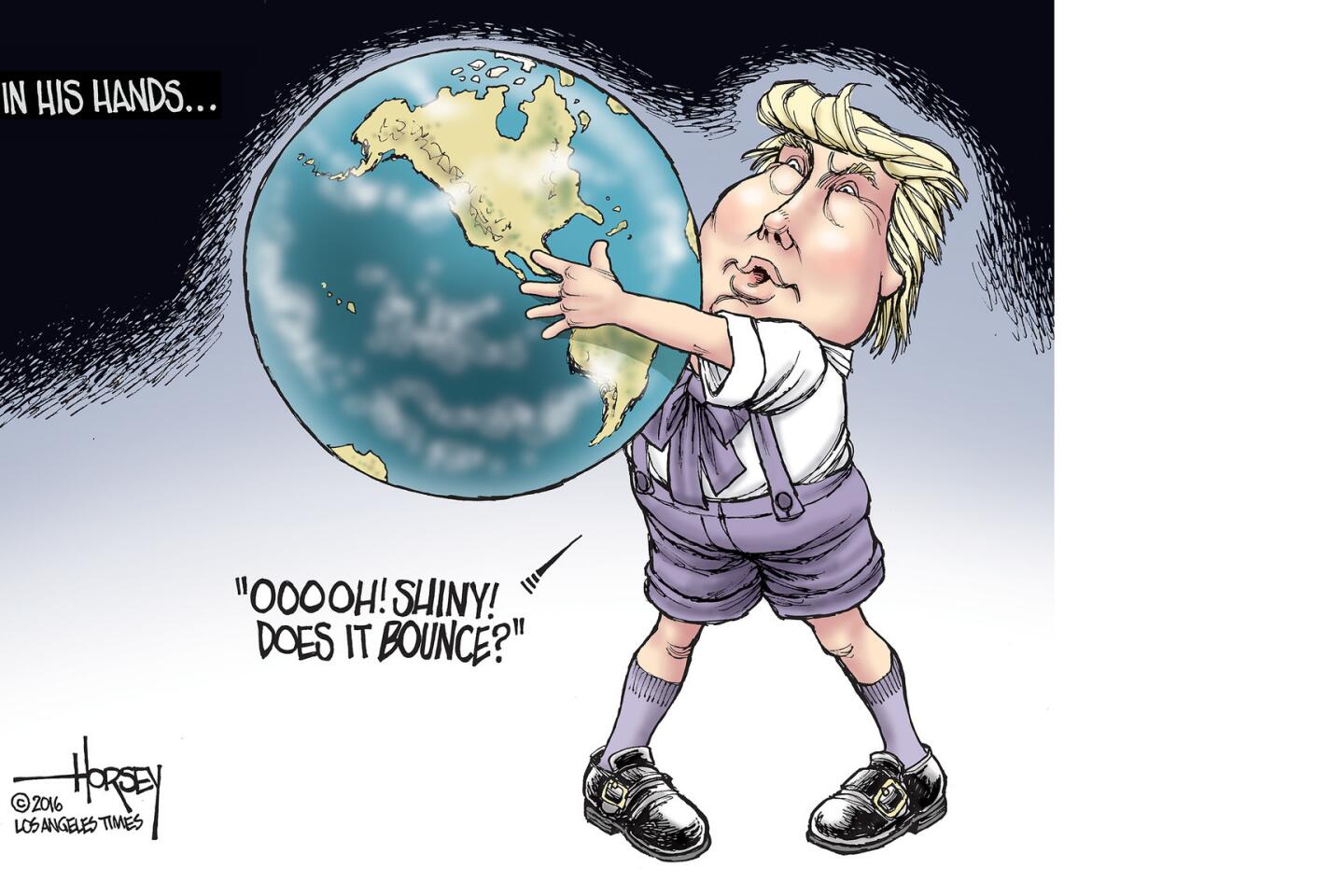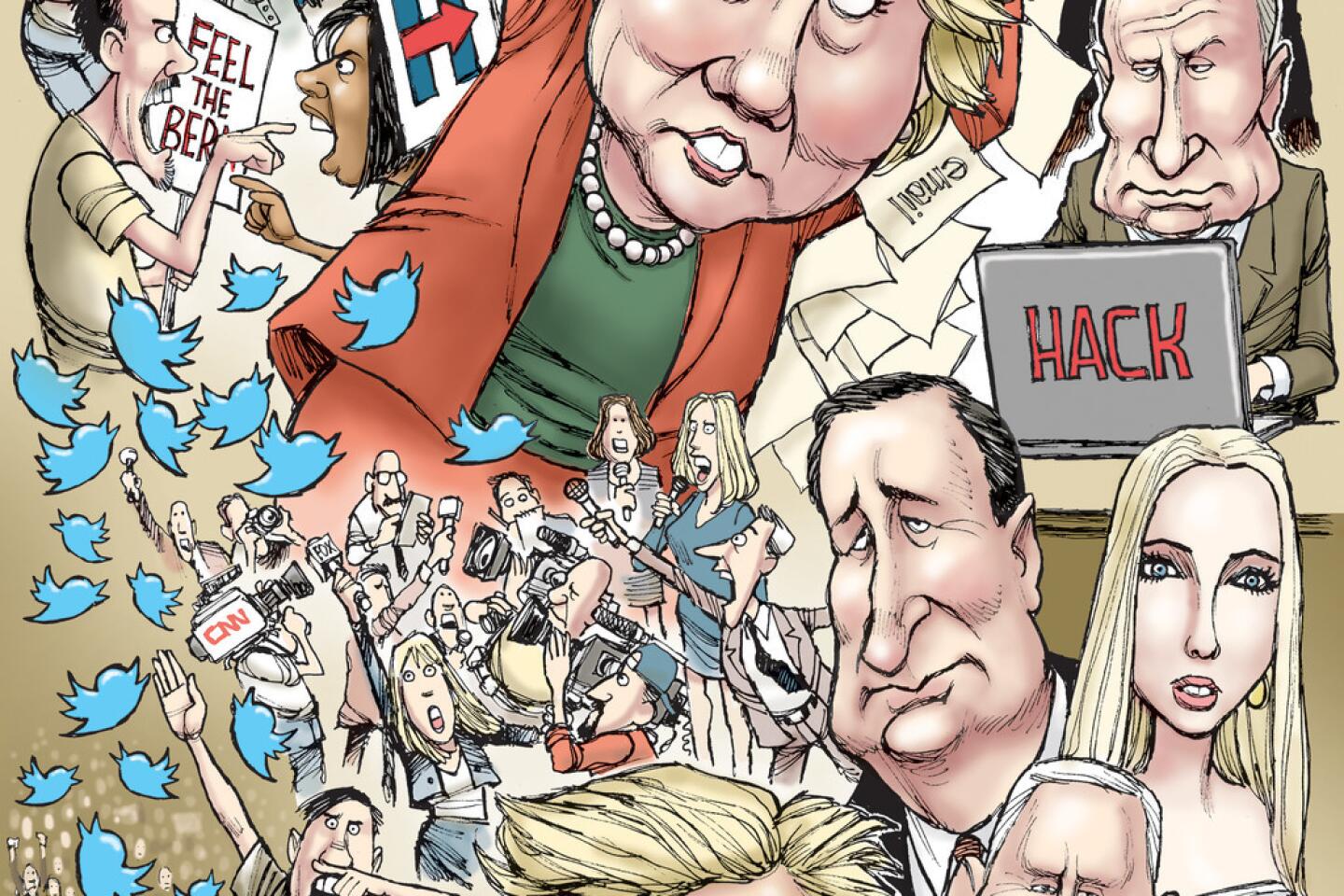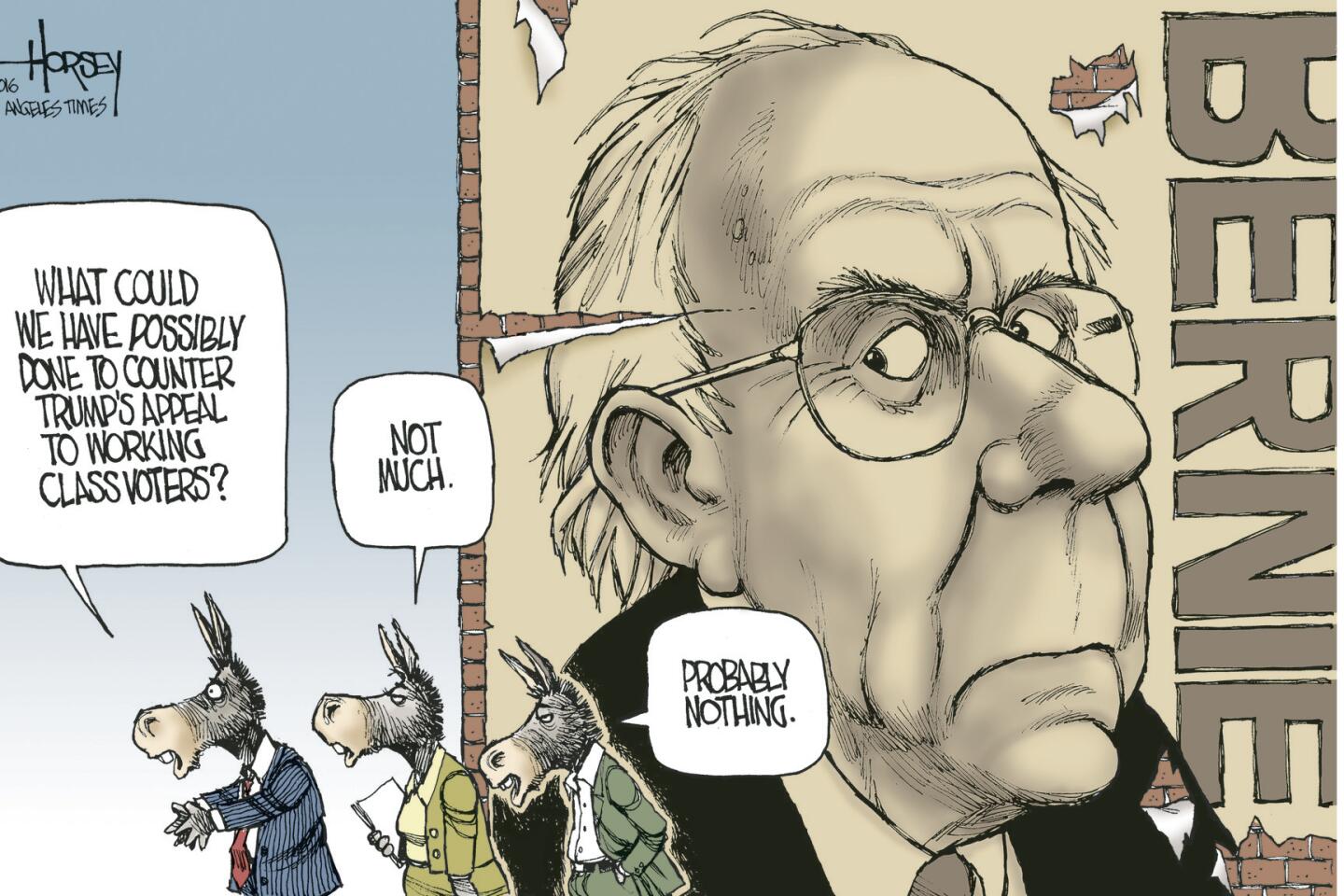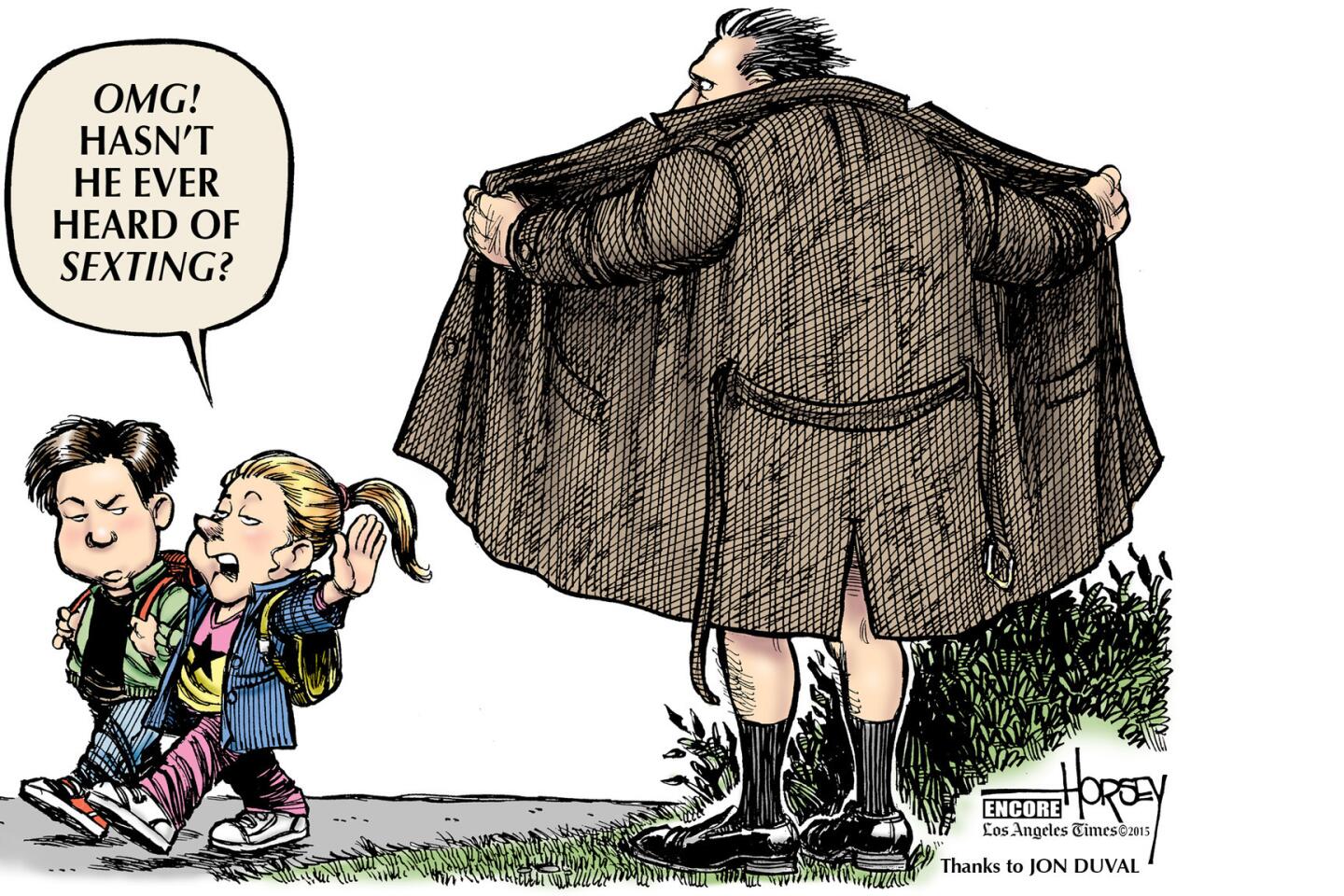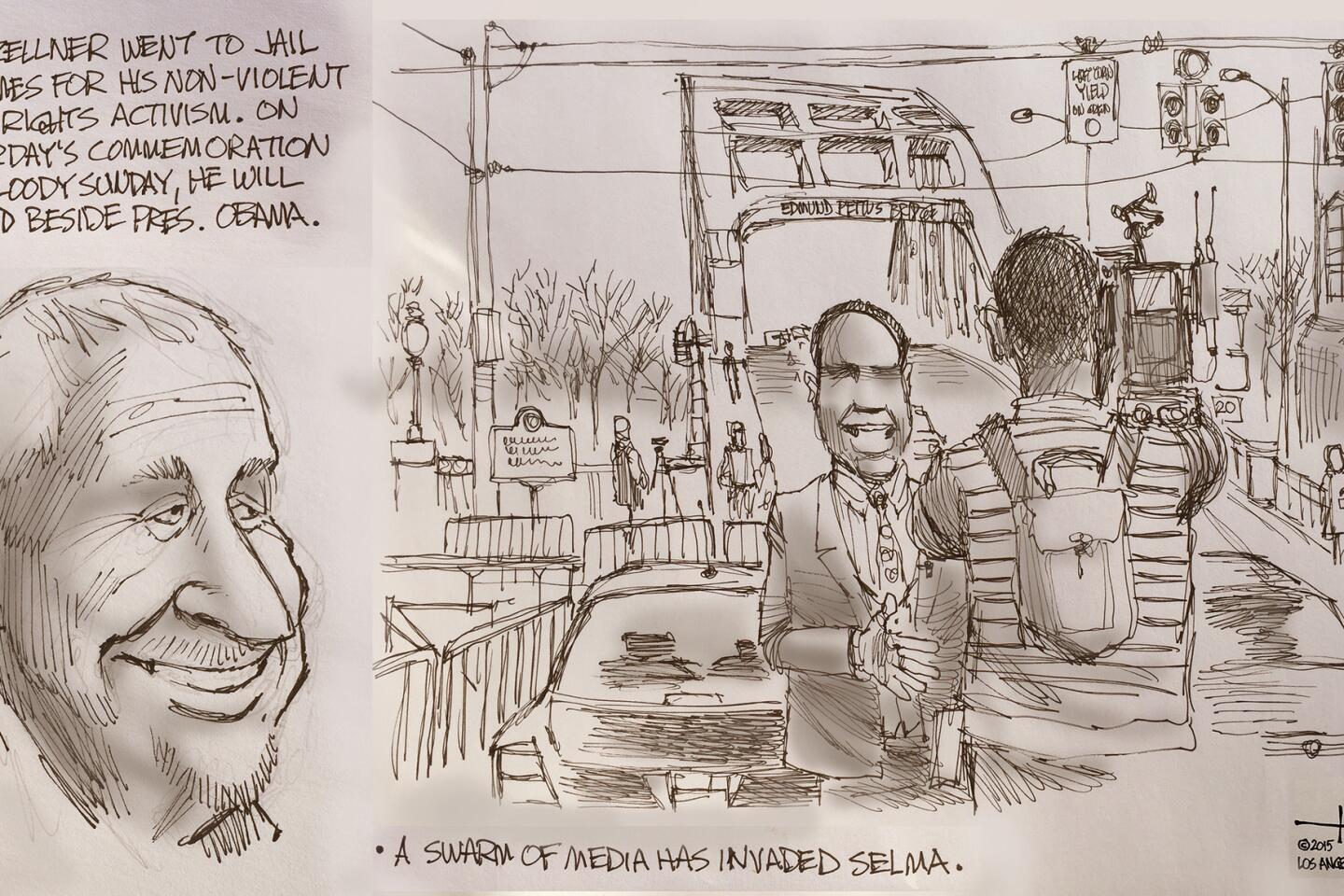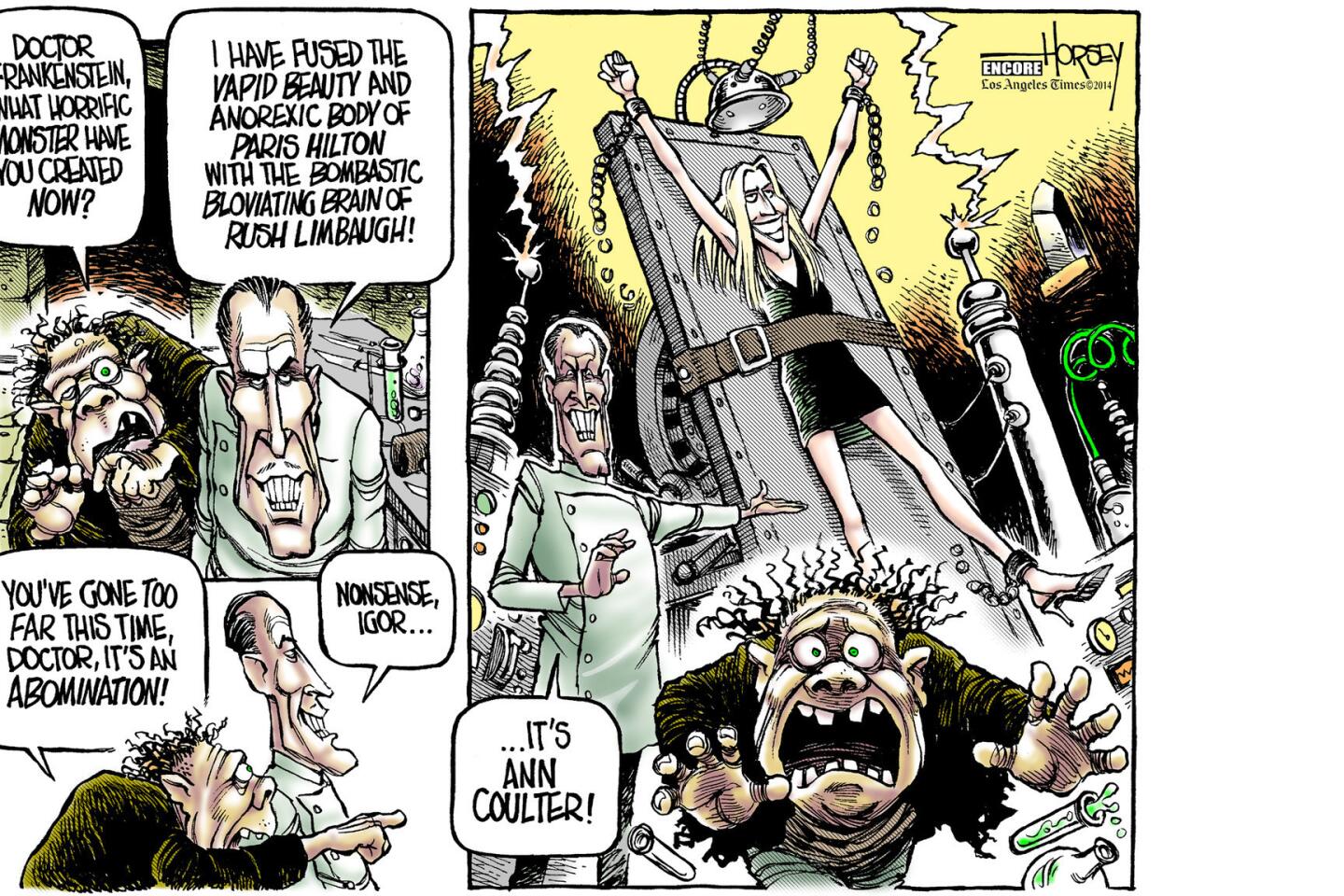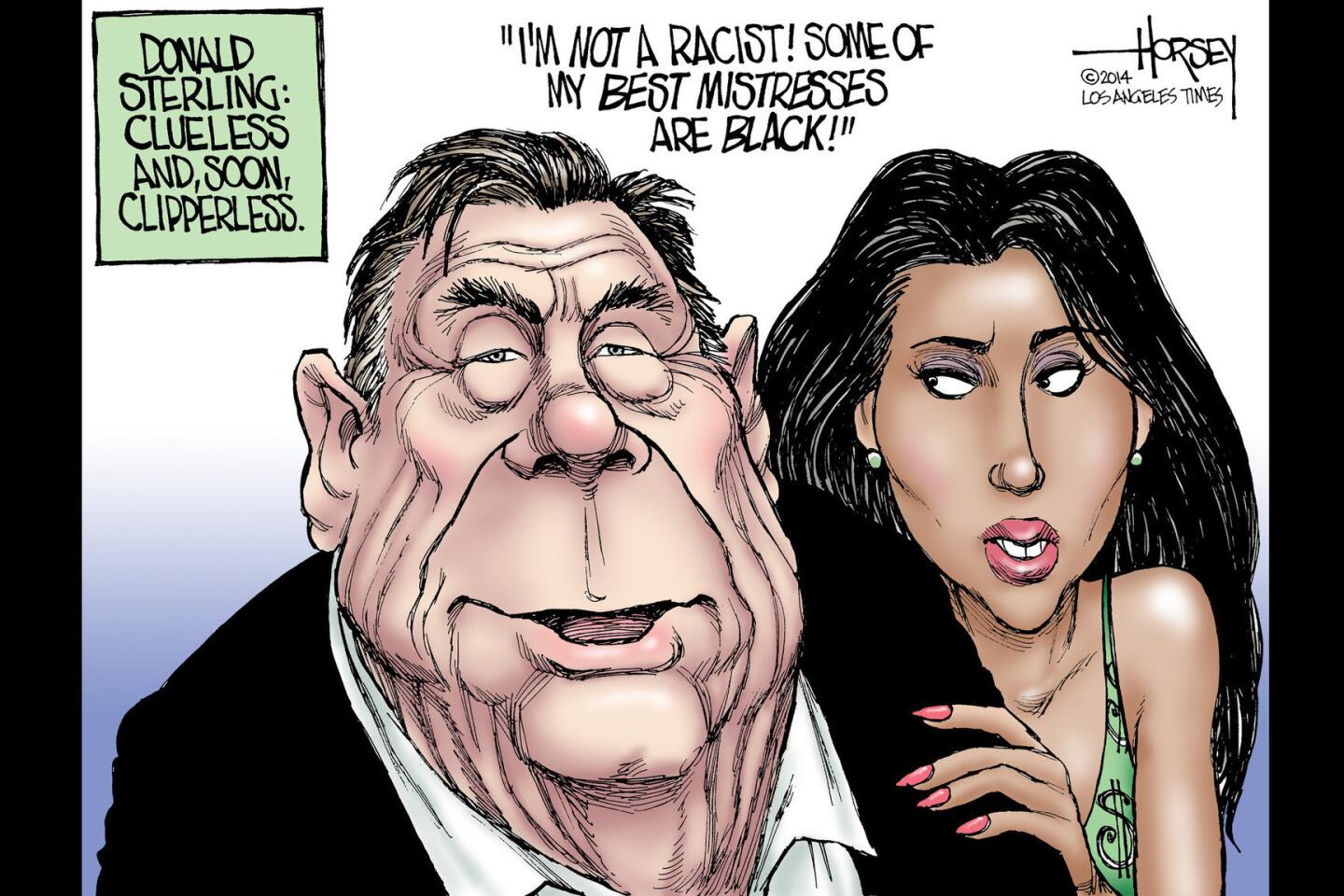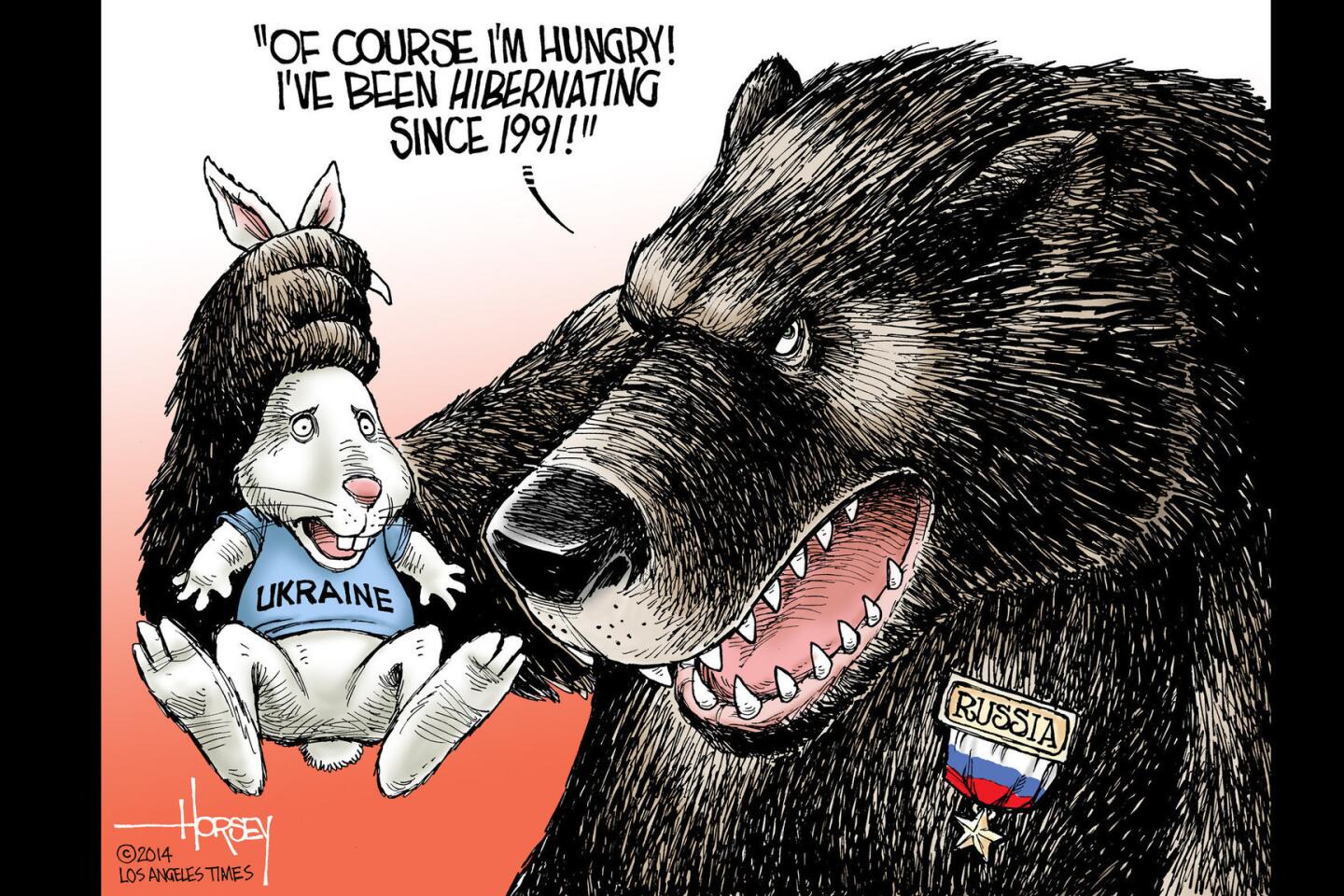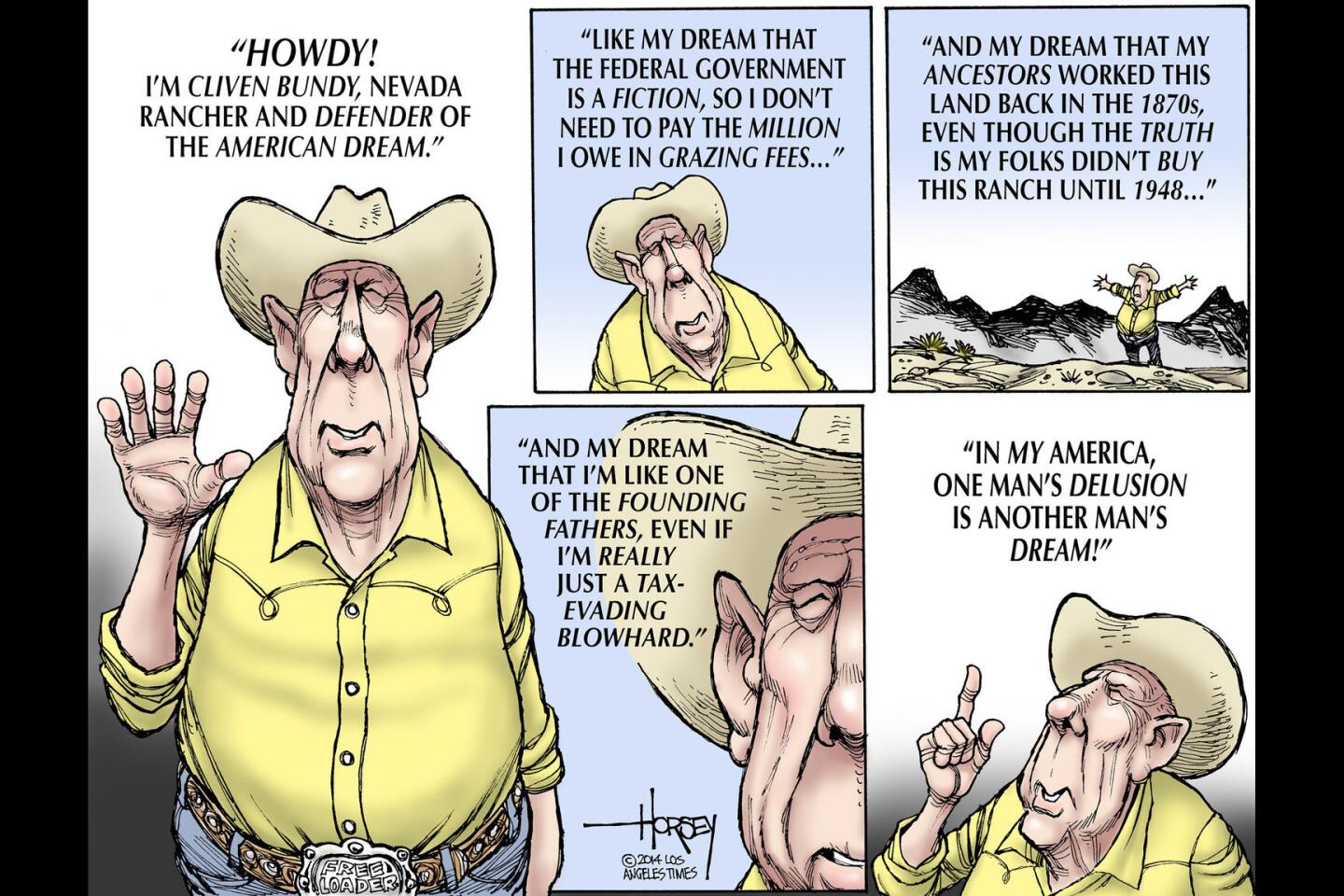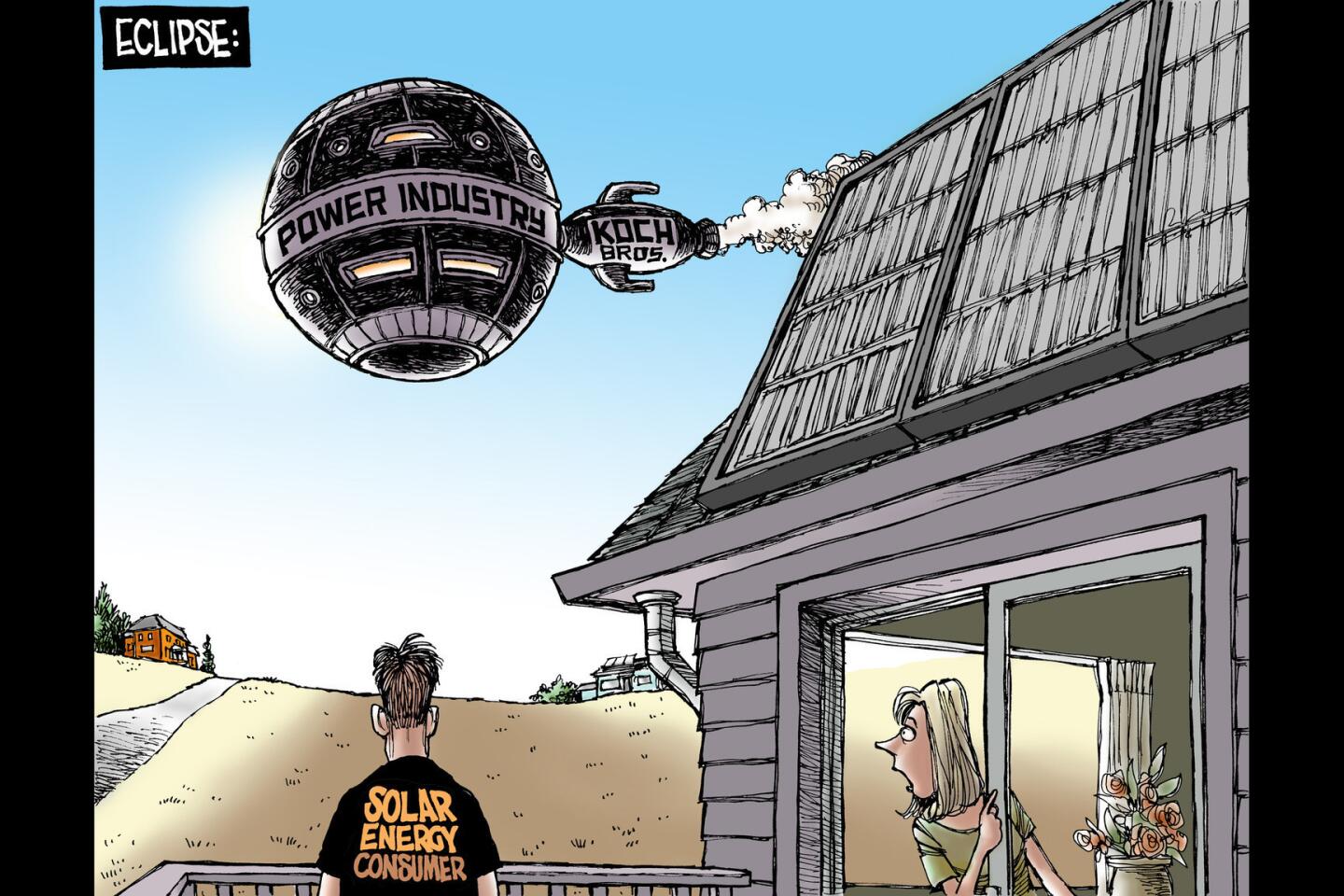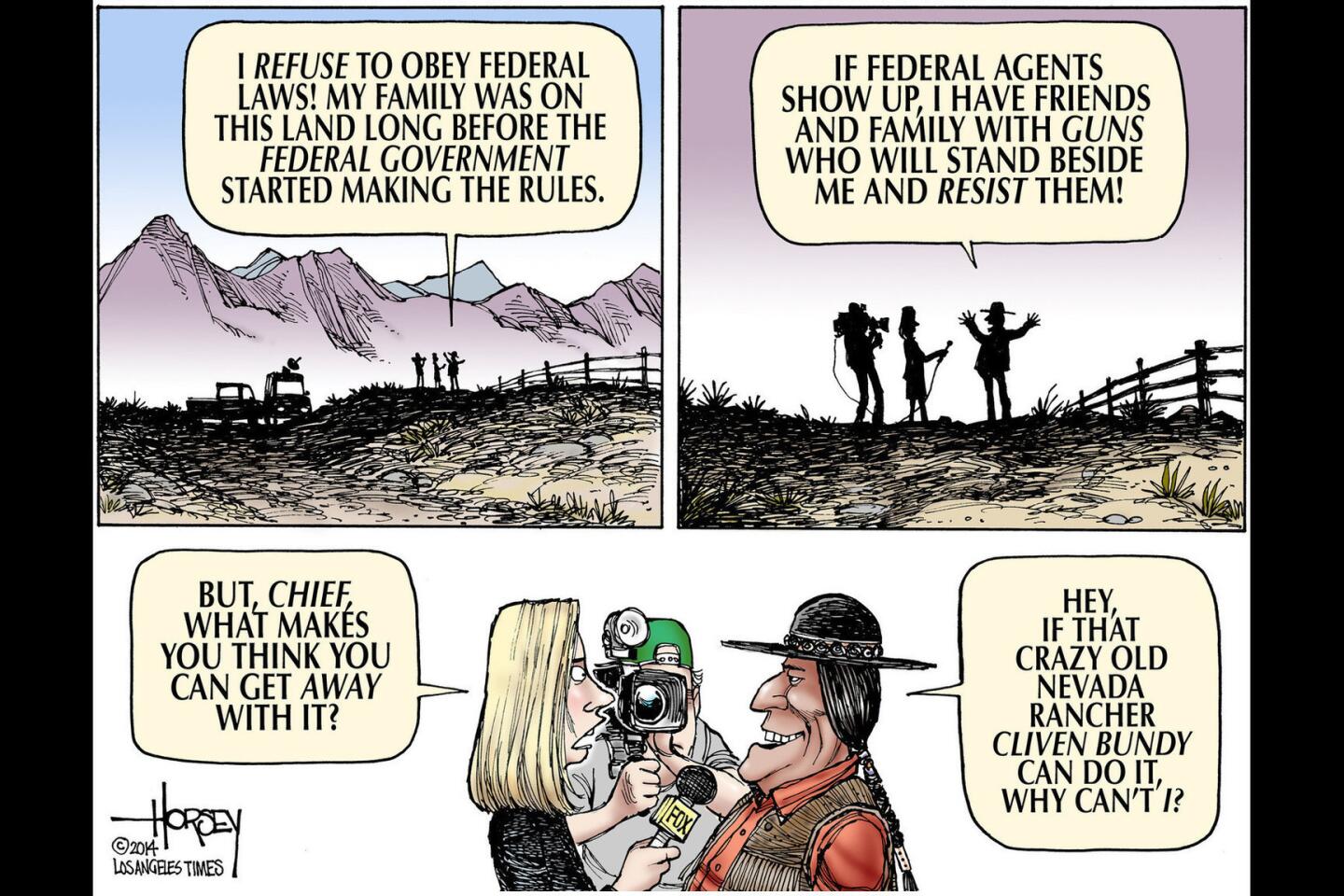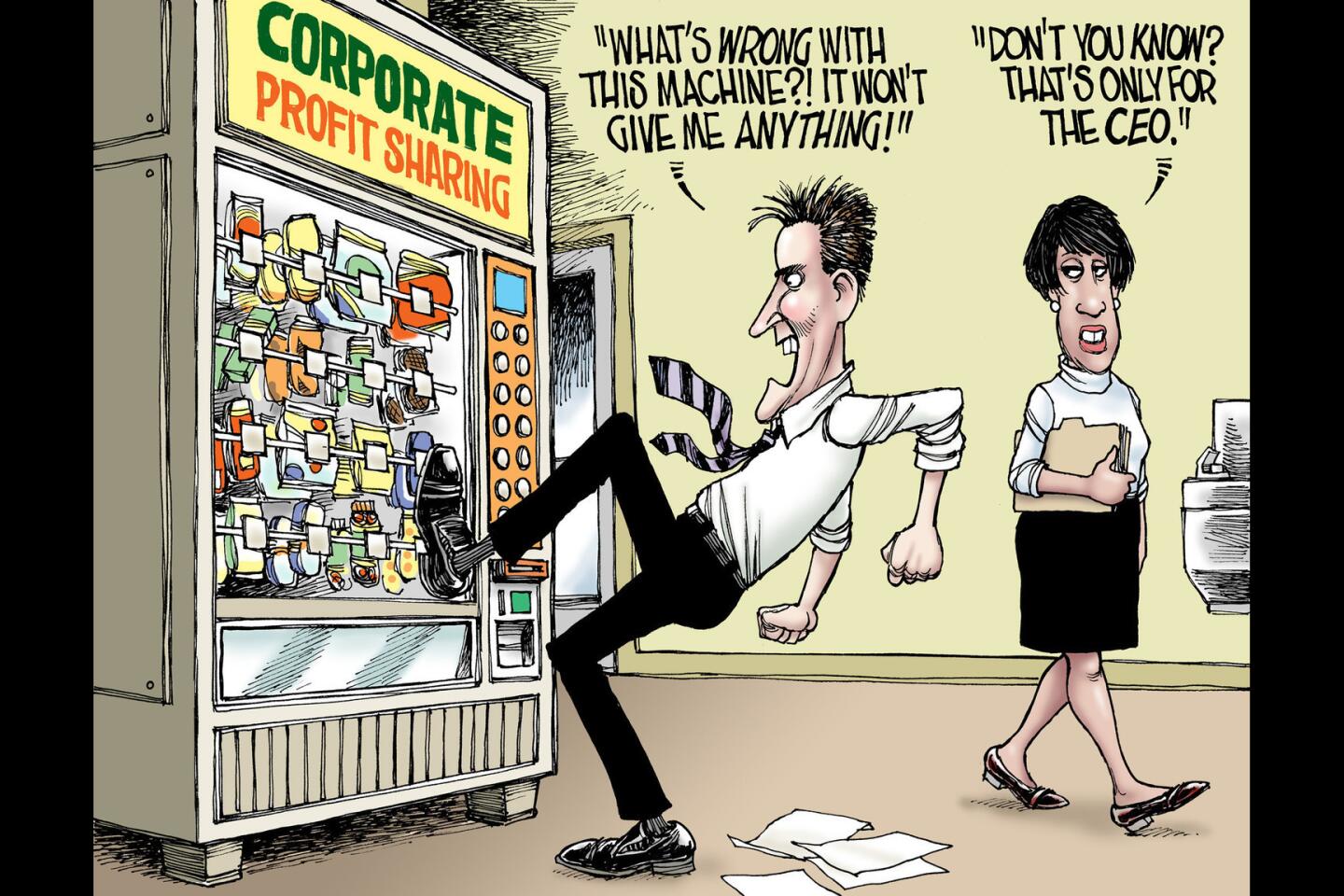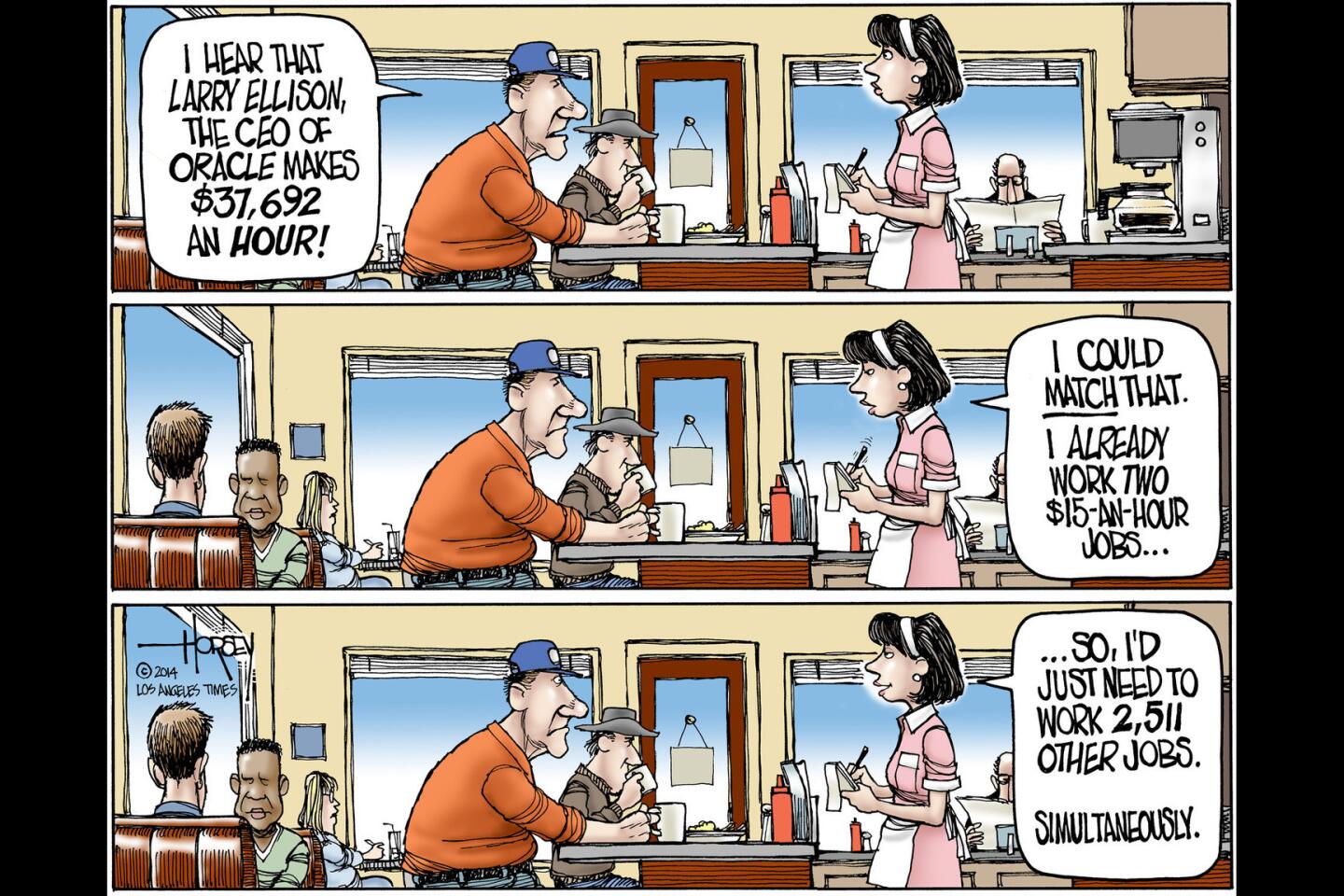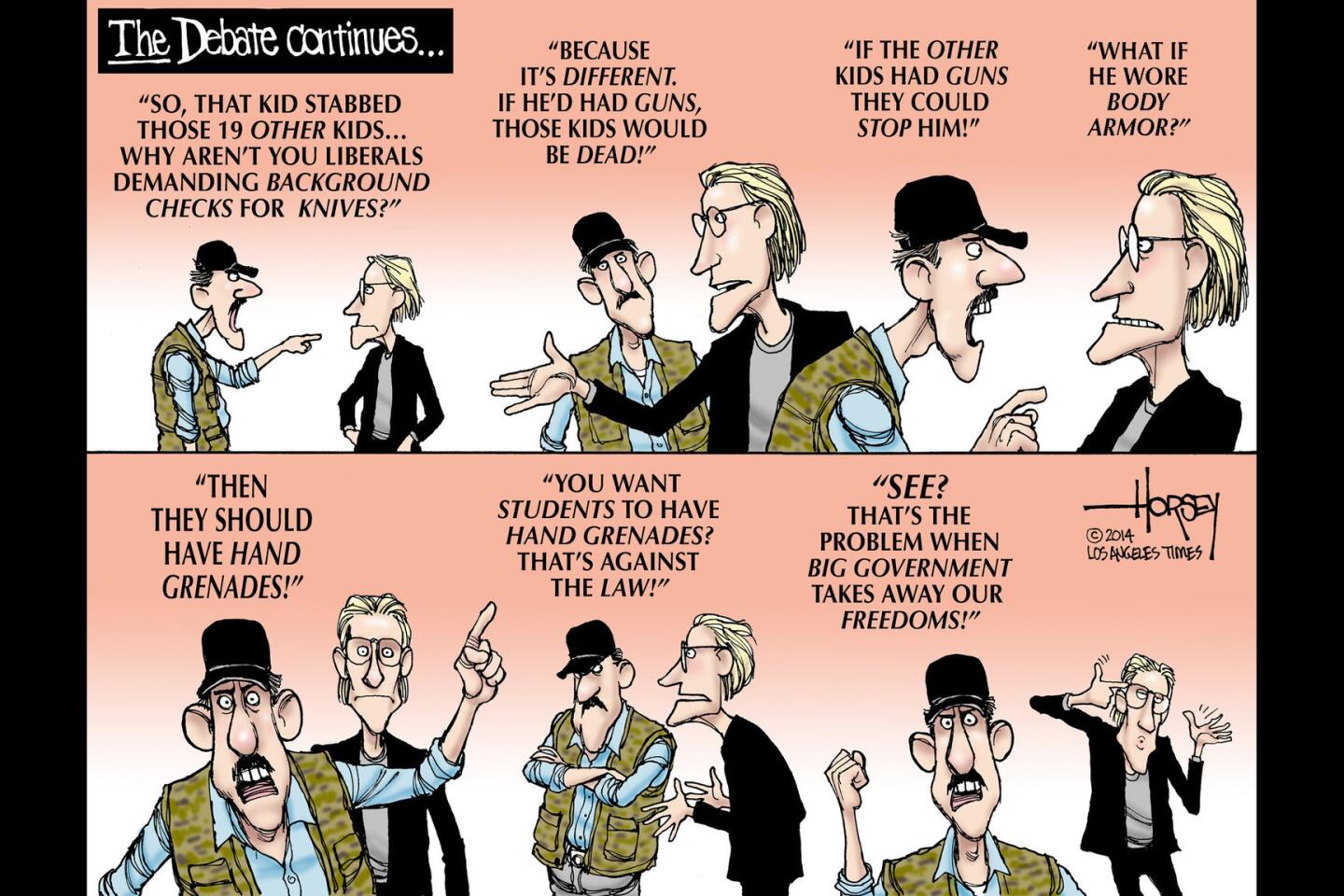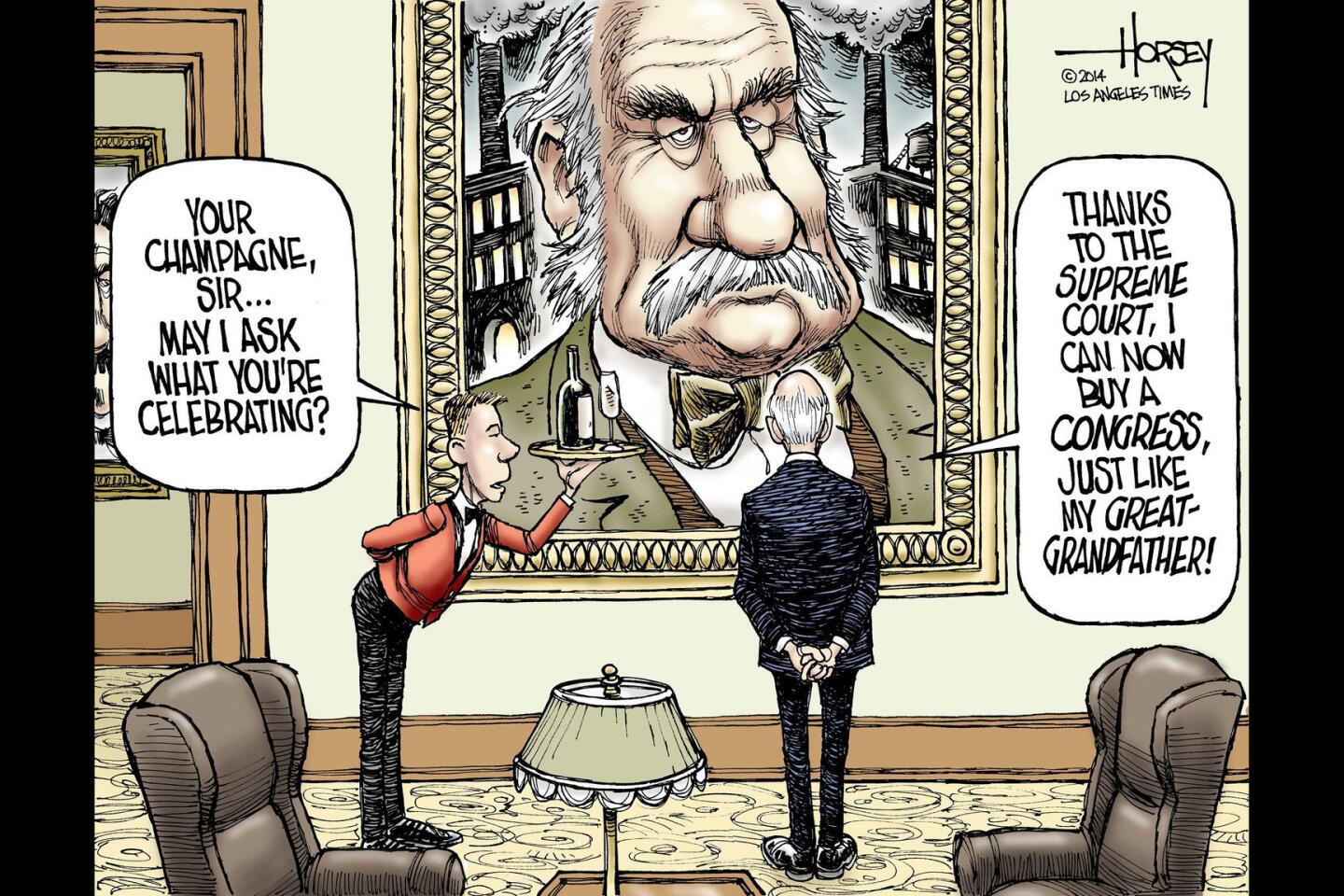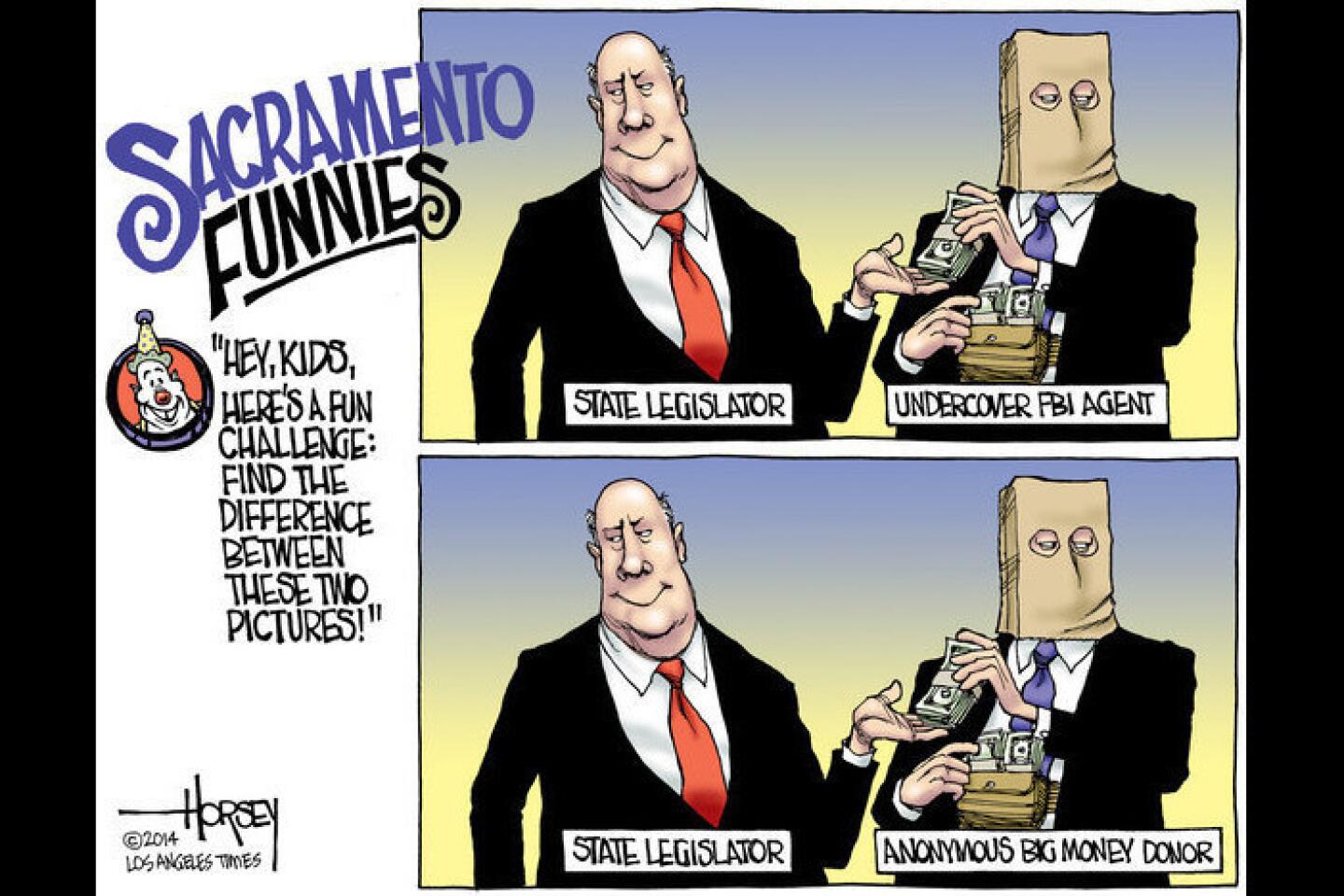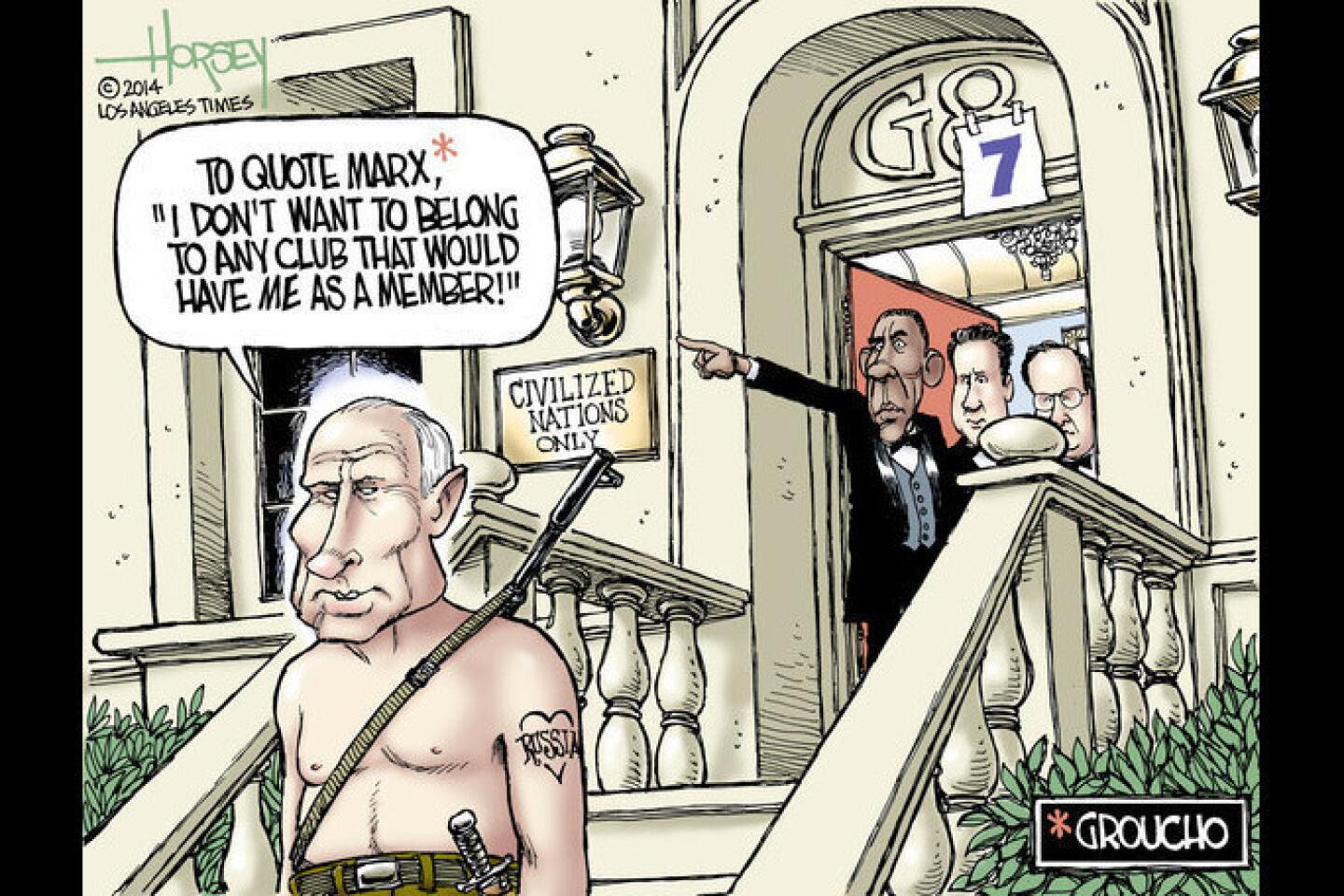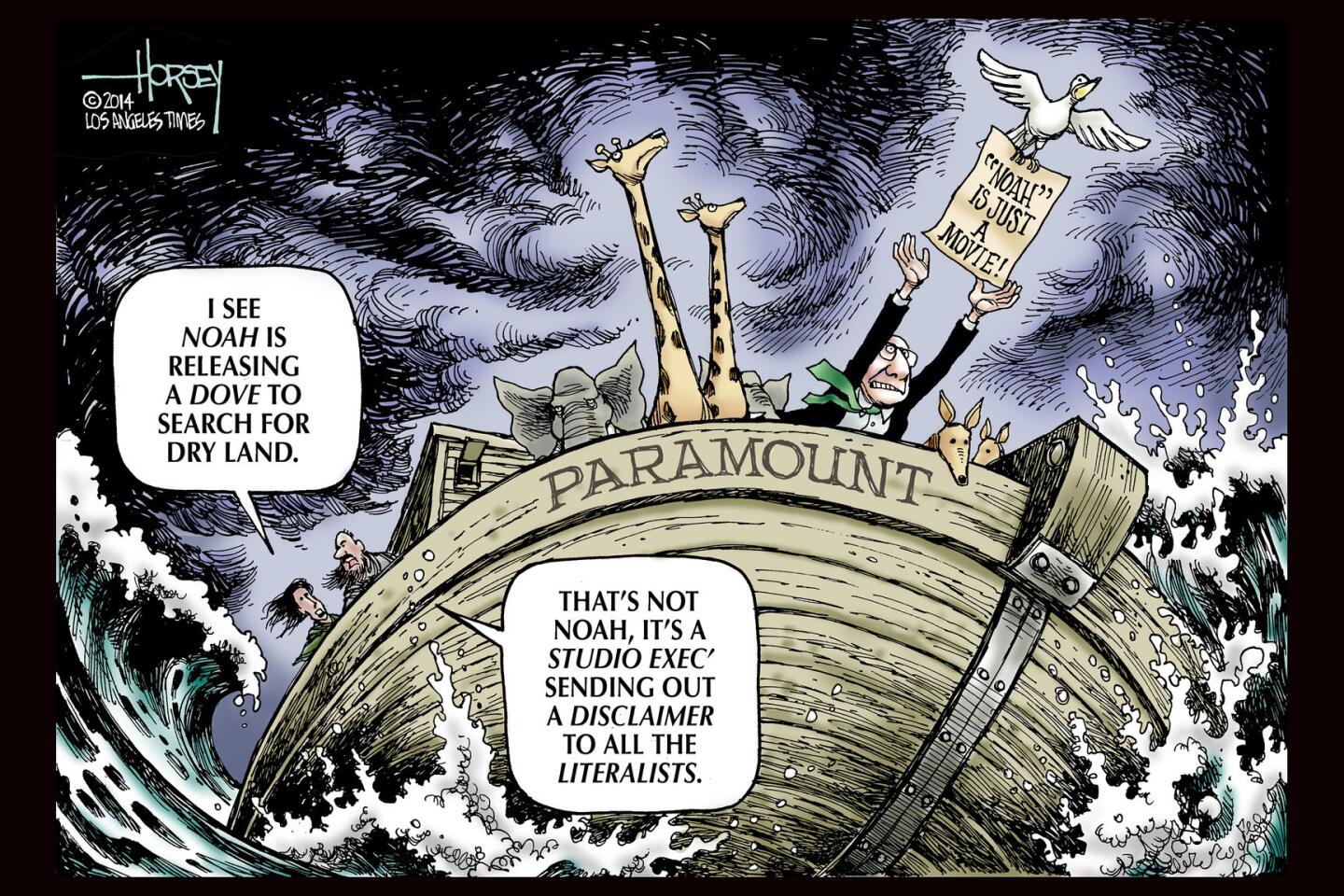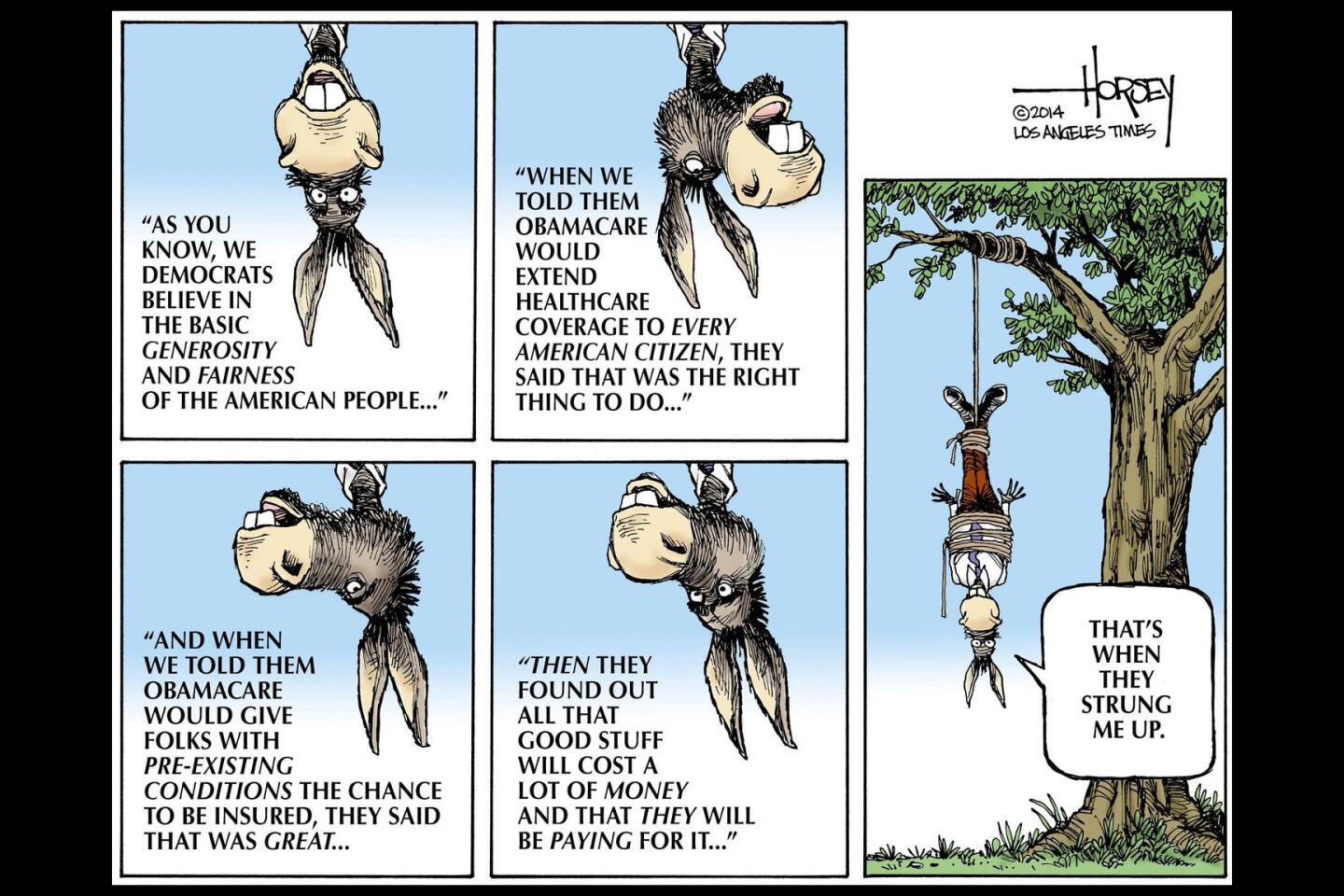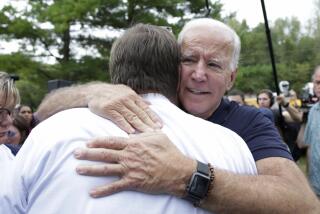America’s bizarro presidential campaign ignores a world of change

In the murky depths of this presidential campaign without end, it is cleansing to have a moment of clarity. One such moment came to me a little over a week ago as I listened to David Rennie speak at the annual banquet of the Assn. of American Editorial Cartoonists in Durham, N.C.
Rennie is the Economist’s Washington bureau chief and, though ensconced inside the Beltway, he has years of experience reporting around the globe that gives him a view beyond the tunnel vision of conventional political analysis. His core message to the cartoonists was this: The American presidential campaign of 2016 is largely divorced from reality. Now, this is not a unique revelation. Anyone who has fact-checked a Donald Trump speech in the last 16 months knows how delusion has driven his campaign. But Rennie was not talking about Trump alone, he was talking about the entire political process in the United States and the media that cover it.
Culturally estranged and economically insecure working-class voters have powered the Trump phenomenon, while the same sorts of people put Brexit over the top in Britain and spiked support for anti-immigrant nationalists in France and Germany. Rennie pointed out that the fairly wide diversity in economic policies in these several countries has resulted in the same economic malaise. The habitual trading of blame among political candidates and political parties, he said, misses a very enormous point.
Western capitalism went on a long winning streak in the second half of the 20th century. In the U.S., Europe and Canada, this boom brought abundant jobs and generous social welfare systems. Today, most Americans think of that time as normal. With wages stagnating and jobs disappearing, everyone in politics has spent more than a decade pointing fingers of accusation at whoever is on the other side. Conservatives blame liberals for spending too much and over-regulating business. Liberals blame Republican trickle-down economics for vastly rewarding a select few people at the top while leaving the middle class to work harder for less pay.
Though policies do make a difference at the margins, Rennie said no one is acknowledging how the world has changed since 1960. Back then, the Soviet bloc had opted out of the global economy. China was closed off and smothered in fanatic ideology. India was still very much in the Third World. Now they are all major competitors in the international marketplace and it has changed everything.
Combined with revolutionary advances in technology that have automated millions of tasks that used to be done by human beings, the addition of billions of new workers to the world economy has created a radically different level of competition for job-seekers in North America and Europe. Rennie noted that this profound shift is ignored in the presidential debate. Instead, candidates on all sides act as though the clock can be magically turned back by tinkering with taxes or infrastructure spending or, in the case of Trump, making better deals.
Rennie said there is one big advantage the U.S. has in this altered economic environment. Europe, Japan and even China face a big demographic challenge; their populations are aging and, soon, they will not have enough young workers to sustain their economic and social systems. Americans, though, have a powerful resource that can keep the economic engines running: young immigrants. That, of course, goes entirely against the immigrant-bashing mythology of the 2016 campaign.
It is appalling that the national debate is mired in tweets about sex tapes and overweight beauty queens while barely acknowledging a long list of crises, from the horrors of Aleppo to the ravages of climate change. It may be no better, though, when the talk does turn serious, because this “serious” talk is largely composed of blame and wishful thinking that is blind to a world of change.
Follow me at @davidhorsey on Twitter
More to Read
A cure for the common opinion
Get thought-provoking perspectives with our weekly newsletter.
You may occasionally receive promotional content from the Los Angeles Times.
